Ann and I talk about growing up in Silicon Valley in the first episode of our podcast, Boots & Bangles : The Small Business Sisters.
We are sisters, eight years apart (this photographer thought Ann was the older one, ha! 😉) with two brothers between us and parents who raised us to make our wildest dreams happen.
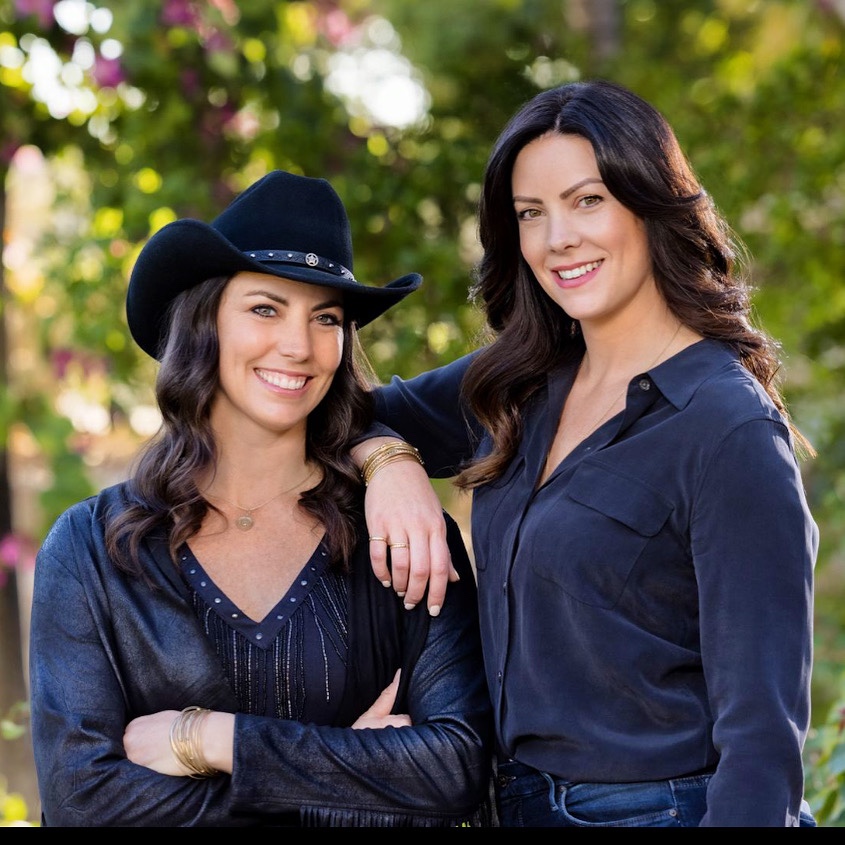
We grew up in what is now known as Silicon Valley, the epicenter of tech, wealth and opportunity. But our childhood was centered on family, hard work and making memories… thanks to our parents.
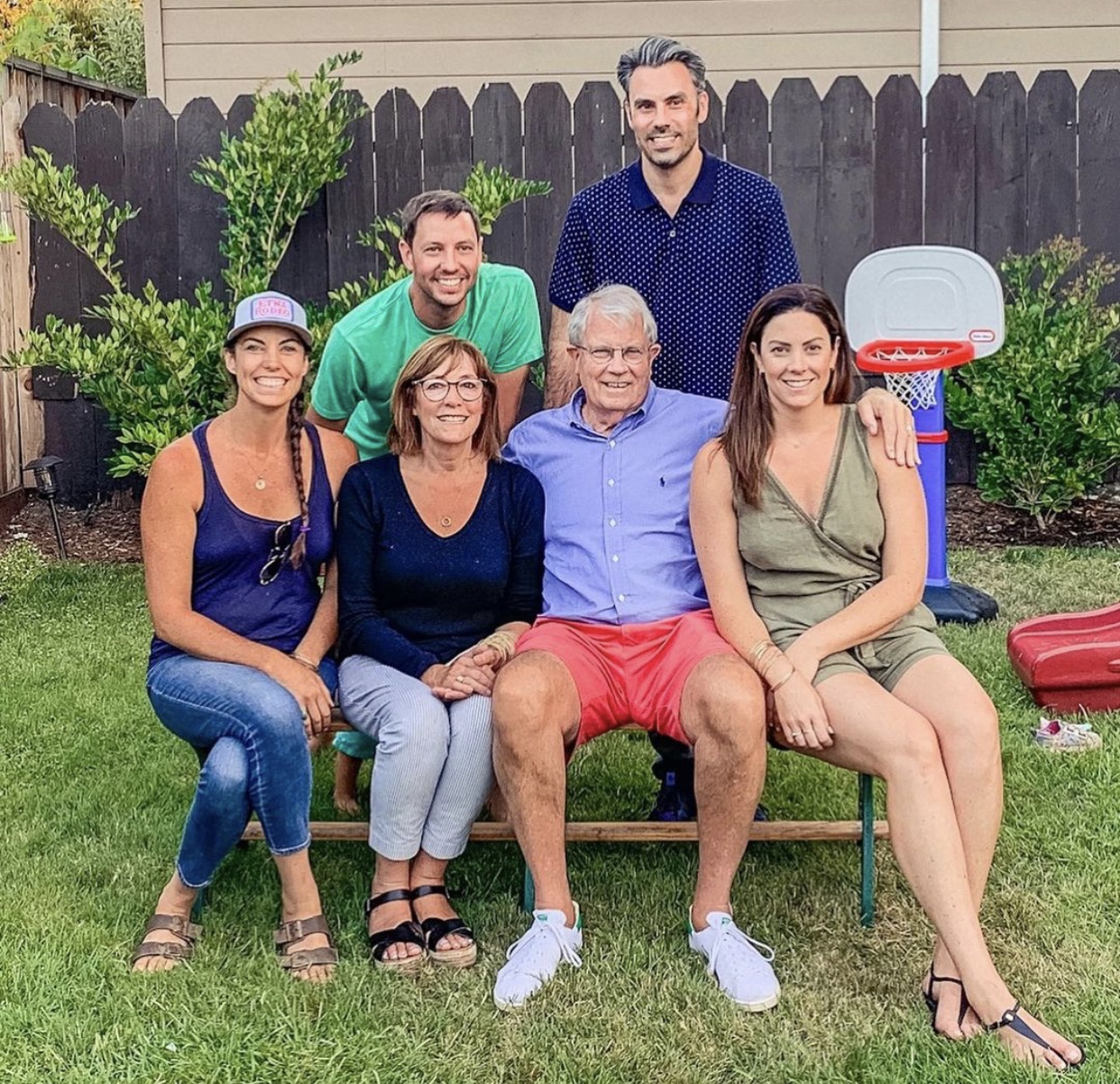
We are both entrepreneurs now, with a myriad of small businesses between us and we both left the land of tech-based opportunity for product or service based businesses in Nashville and rural California.
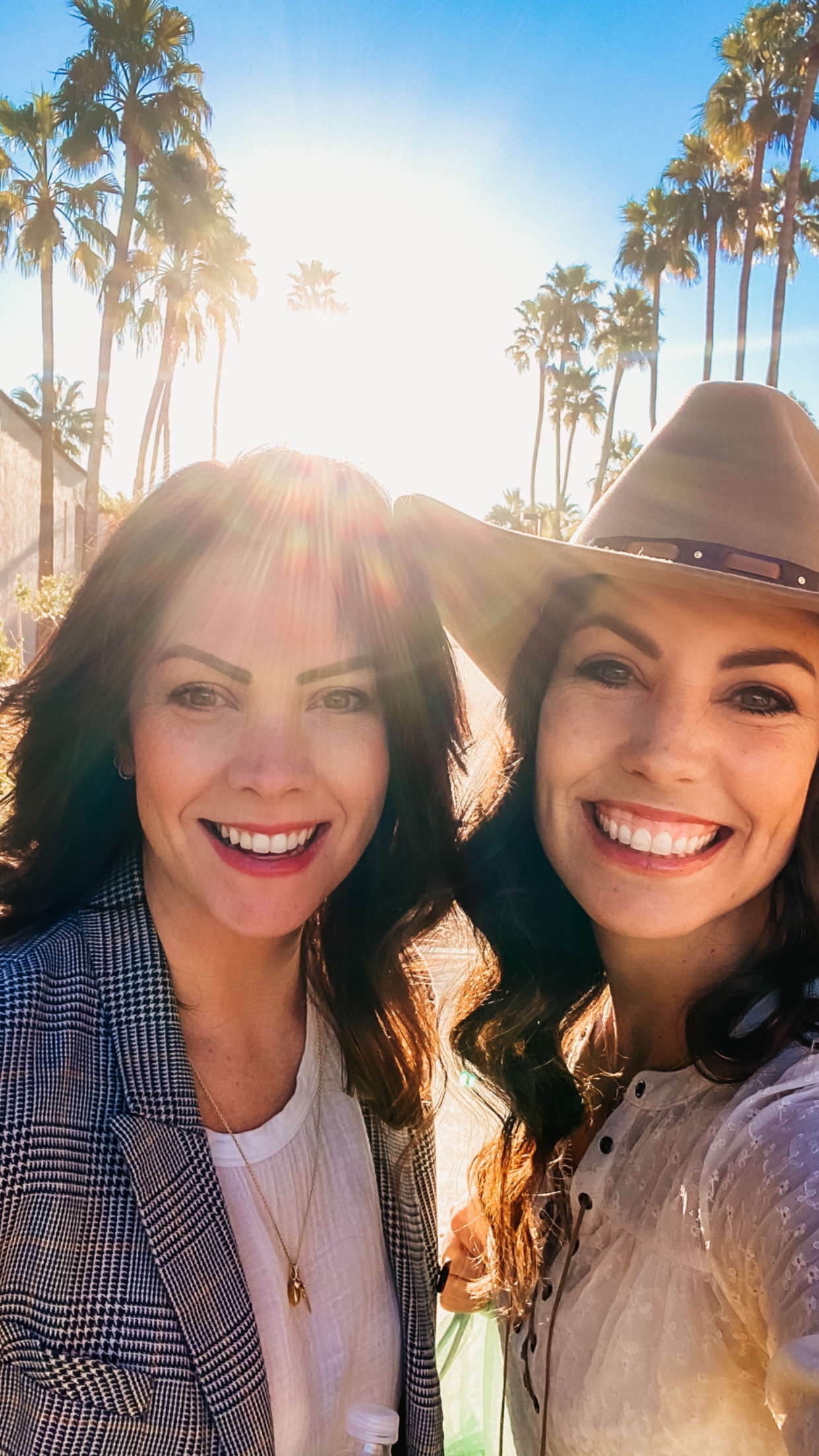
We’ve learned a lot along the way…. but Episode 1 of our podcast tells you a little bit about where we started.
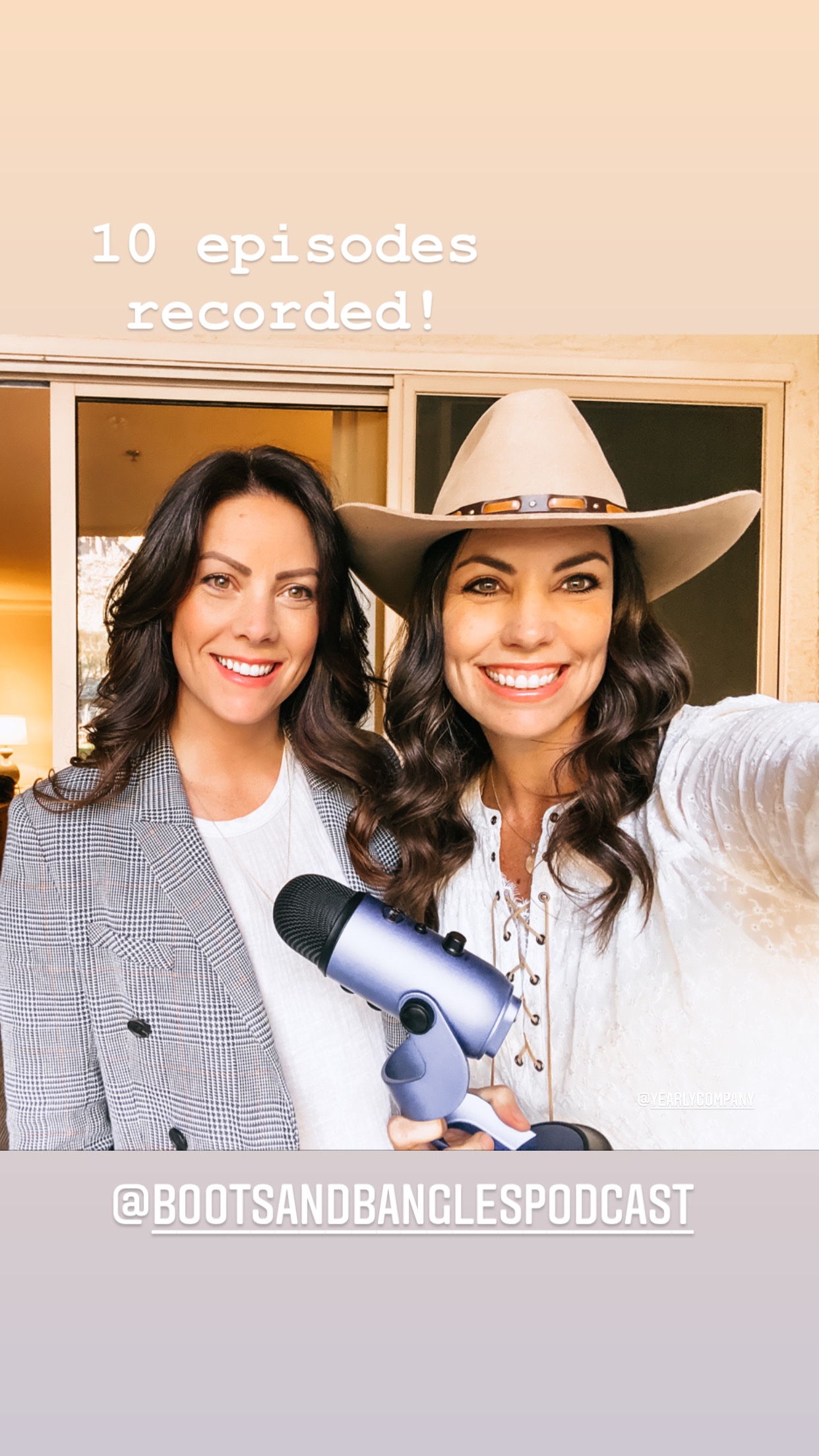
🖤 Follow us on Instagram at :
@yearlycompany
@fivemarysfarms
@m5entrepreneurs

Recorded : February 2021
Mary: Welcome to Boots and Bangles. We are the Small Business sisters. I’m Mary Heffernan of Five Marys Farms.
Ann: And I’m Ann Williams, founder of Yearly Company.
Mary: Welcome to the Boots and Bangles podcast, the Small Business Sisters. Today, on our first episode, we are going to talk about growing up in Silicon Valley.
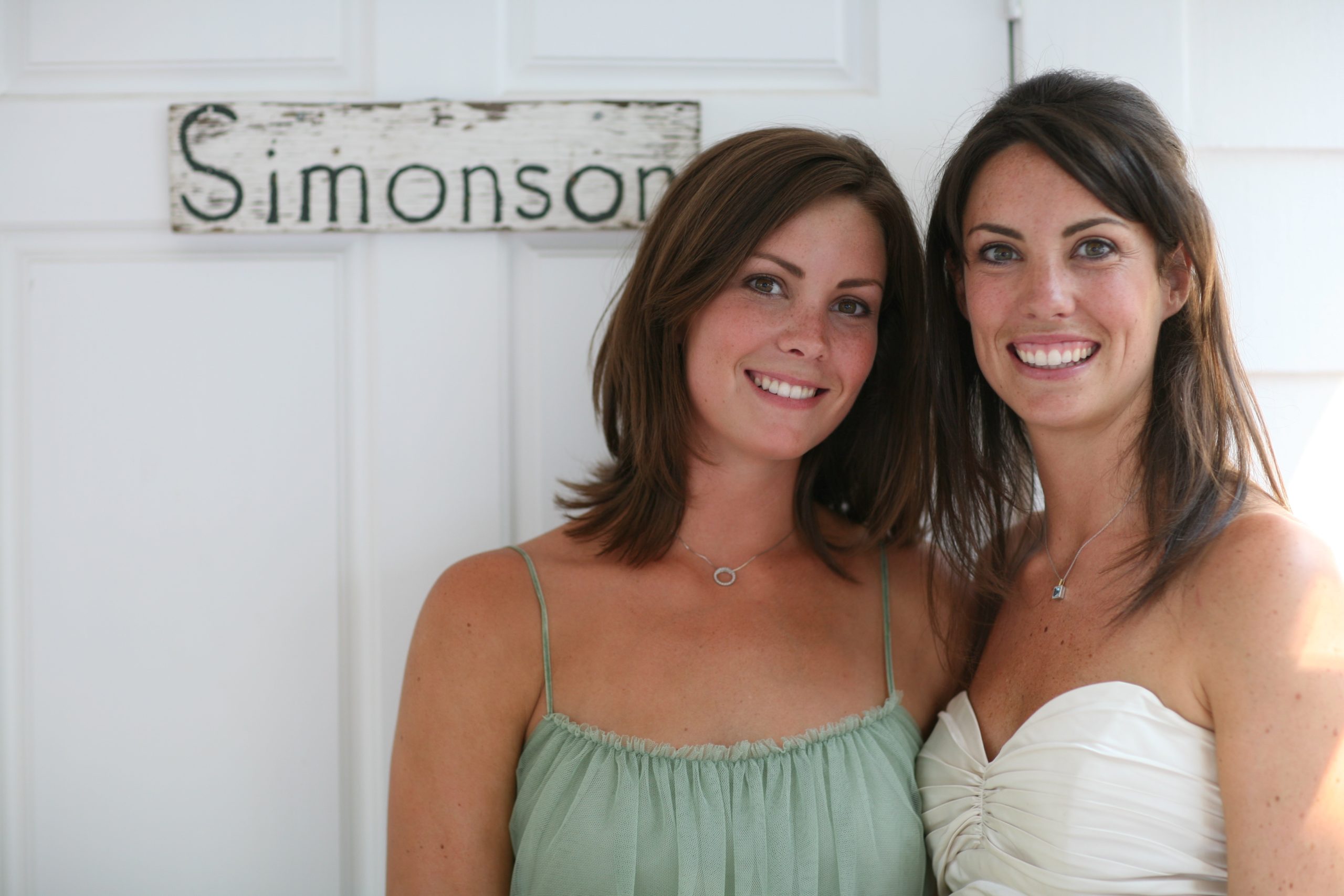
Ann: Yes, a lot of people don’t know, necessarily that Mary and I grew up in such a tech heavy area. And I think it’s kind of funny that we are now product based entrepreneurs. But we take so many lessons from growing up in the area.
Mary: And when we were growing up there, it wasn’t called Silicon Valley. It was called the Bay Area, it’s between San Francisco and San Jose, in Northern California, it was a great place to grow up. It’s just has changed so much since we were little. And Ann and I are actually eight years apart.
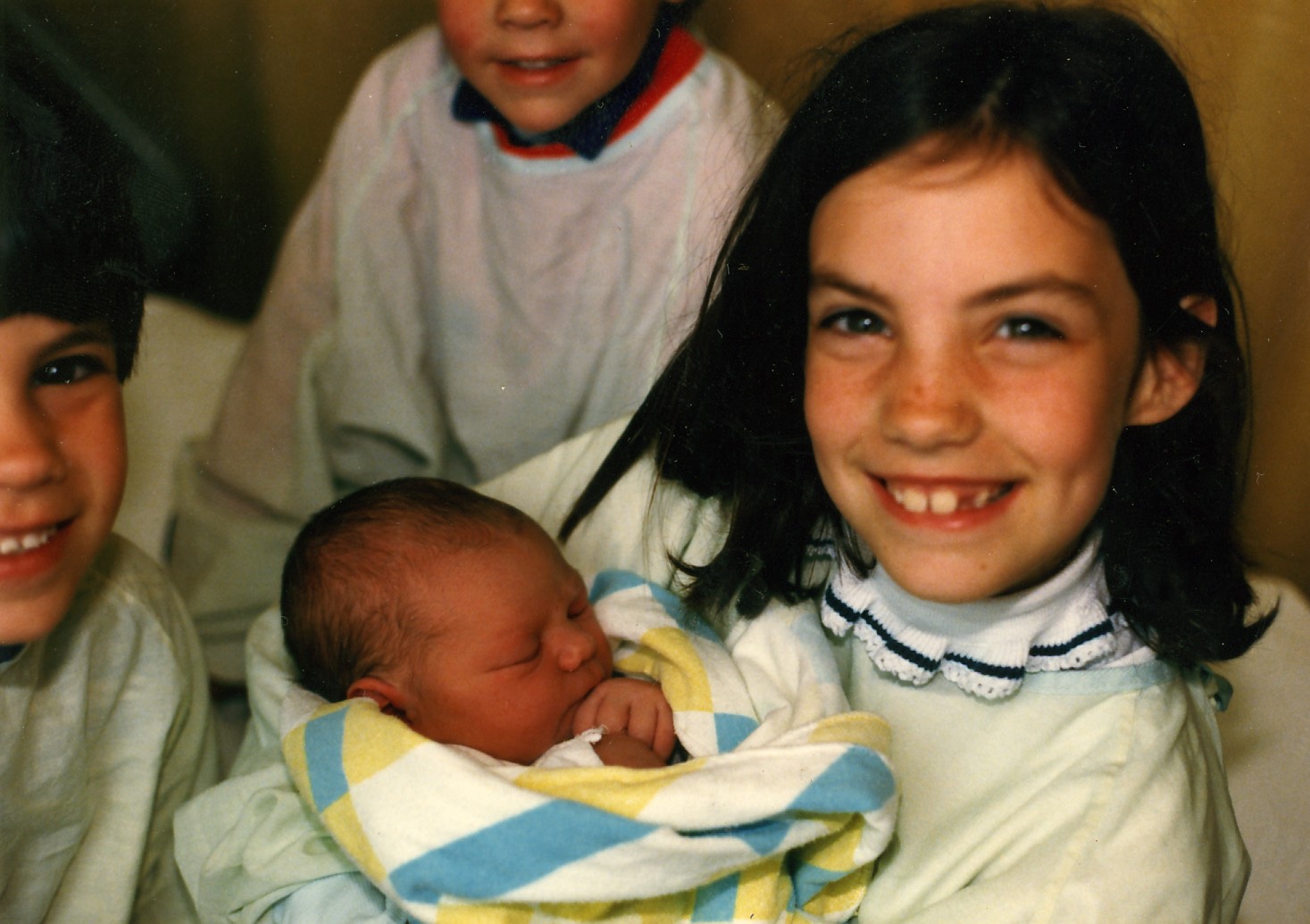
Ann: It’s hard to believe
Mary: I’m the oldest and we have two brothers in between, James and Jerry, and Ann was the baby. She was ,I was eight years old when she was born. My brothers were six and four. And we callled her Baby Ann.
Ann: Still do!
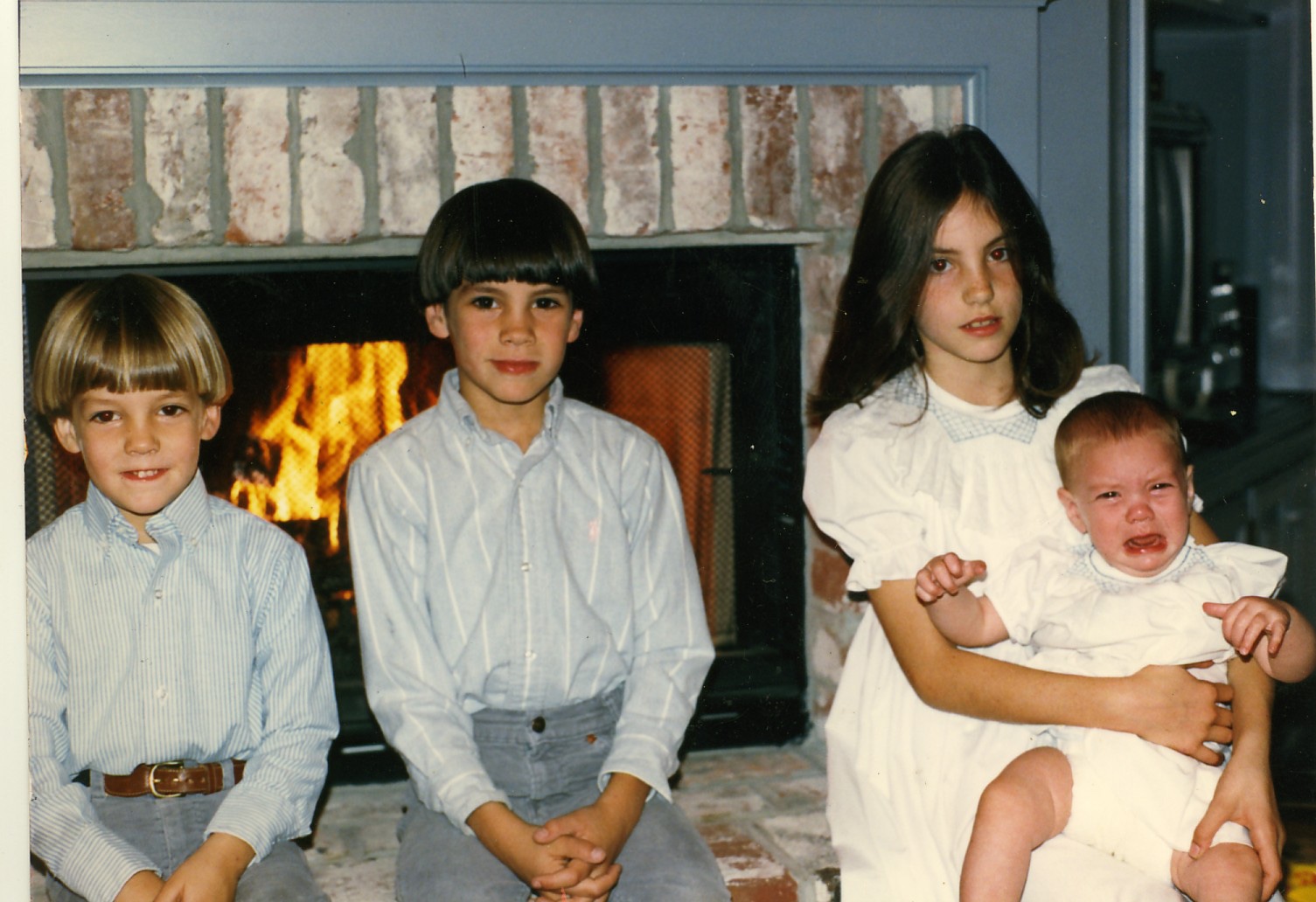
Mary: Right from the beginning and still do, literally my phone says Baby Ann. Her Auntie name is Aba for Auntie Baby Ann, because you can’t just not call her Baby Ann. But in those eight years a lot changed in the Bay Area. It really between growing up, like our high school experiences were really different.
Ann: Very different.
Mary: Yeah. We went to the same high school. Our brothers went to one Catholic school. Ann and I went to another. That’s true. Jerry did –
Ann: A little bit of both. But yeah, the difference in our experiences. I mean, our parents came to Menlo Park, because it’s a beautiful town. The weather everyone will tell you is absolutely amazing.
Mary: It’s like perfect all year long.
Ann: It pretty much is.
Mary: No humidity, there’s no bugs
Ann: No humidity, no bugs. It is a lot different from Tennessee. But it was just a beautiful place to grow up and had great schools. Our dad was a lawyer for many, many years at the same firm. So it was just like a very stable and honestly kind of idyllic childhood and –
Mary: A lot of the families we were friends with had been there for generations, but it was honestly more like a small town when we grew up there. And that was how we were raised, you know, is everybody riding their bikes around, you know, we lived in the county. So there was no sidewalks. My dad got us a golf cart at one point, we just drove the golf cart around town picked up neighbors and…
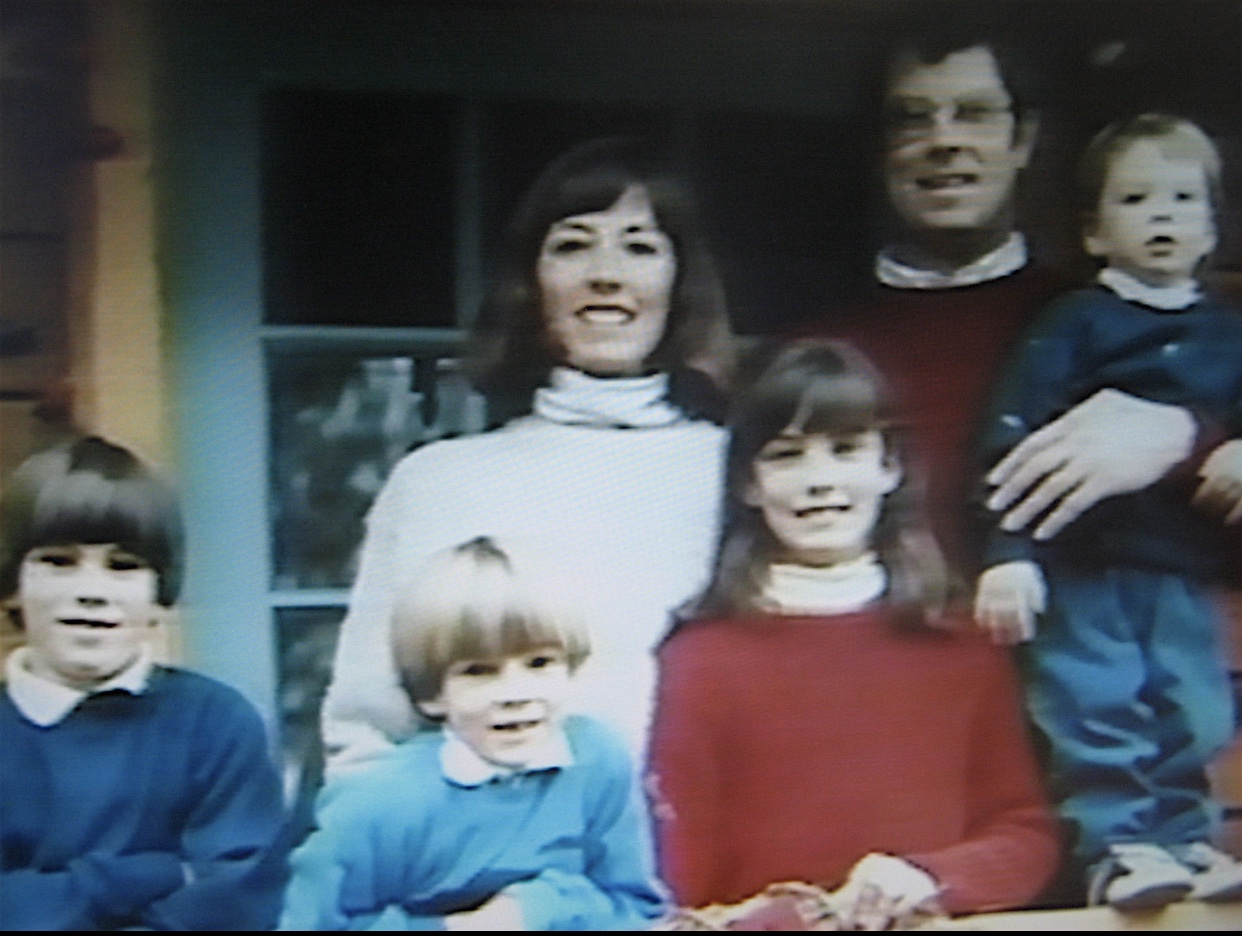
Ann: Yeah we, once, well I was a little but, bought a trampoline from a neighbor and rolled it down the street to bring it home. And I had like no guards on the edges. You know, it’s just the springs.
Mary: I negotiated my babysitting money, I think I paid 50 bucks. So that trampoline, it was totally worth it.
Ann: But I think one of the things I’ve thought about lately is that the area was so different back then. And we grew up with kids and families who are from different, you know, backgrounds like my friend’s dad’s, we’re all different professions. And you’re definitely exposed to a range of incomes and lifestyles. And now it’s much more tech based, I think pretty much everyone there’s somehow involved in tech. And we’ve really saw the rise of that happening like throughout our especially high school like middle school, high school years for me. And it was really eye opening and really interesting. And I mean, all of those stories you hear about Google and Facebook and all of these companies being you know, formed in garages, a lot of that was happening in the towns around us where we grew up.
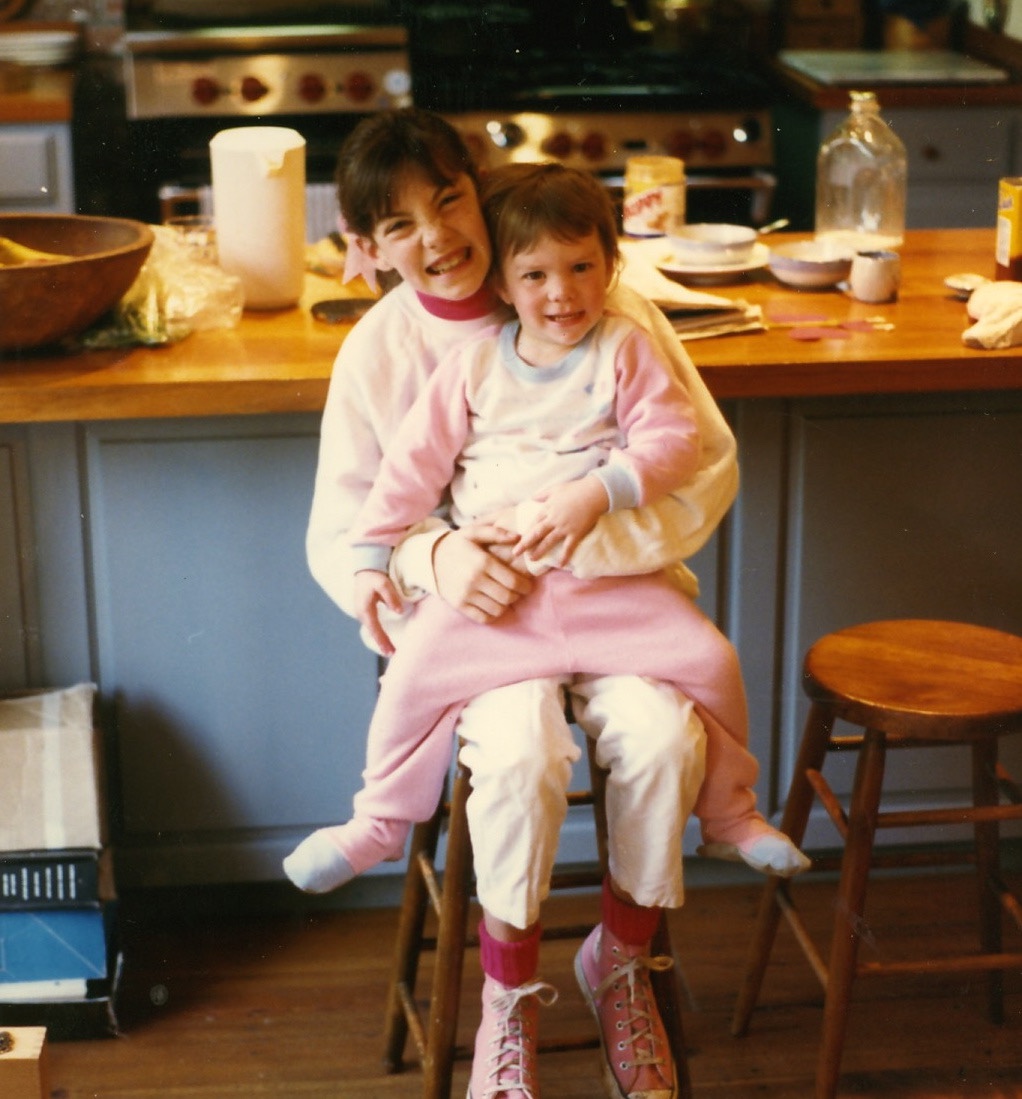
Mary: Yeah. So in the year 2000, I graduated from college, I went to school in Virginia at the College of William and Mary, moved back home to take the MCAT and I in 2000, which is kind of the start of the bubble in earnest. And I remember looking for an apartment and it was like $3,000, you know, for a studio apartment even then. So luckily, I serendipitously ran into friends on the sidewalk who were looking for a tutor for their son in exchange for living in their little guest cottage. And that’s kind of how I got on the path of starting academic trainers and not going to medical school. But it worked out really well for me to you know, have my own place that I could afford, which is so hard for people, even today. It’s just gone up from there. But in 2000, you were, still in high school?
Ann: Yeah, starting. I graduated from eighth grade in 2000.
Mary: You’re a baby.
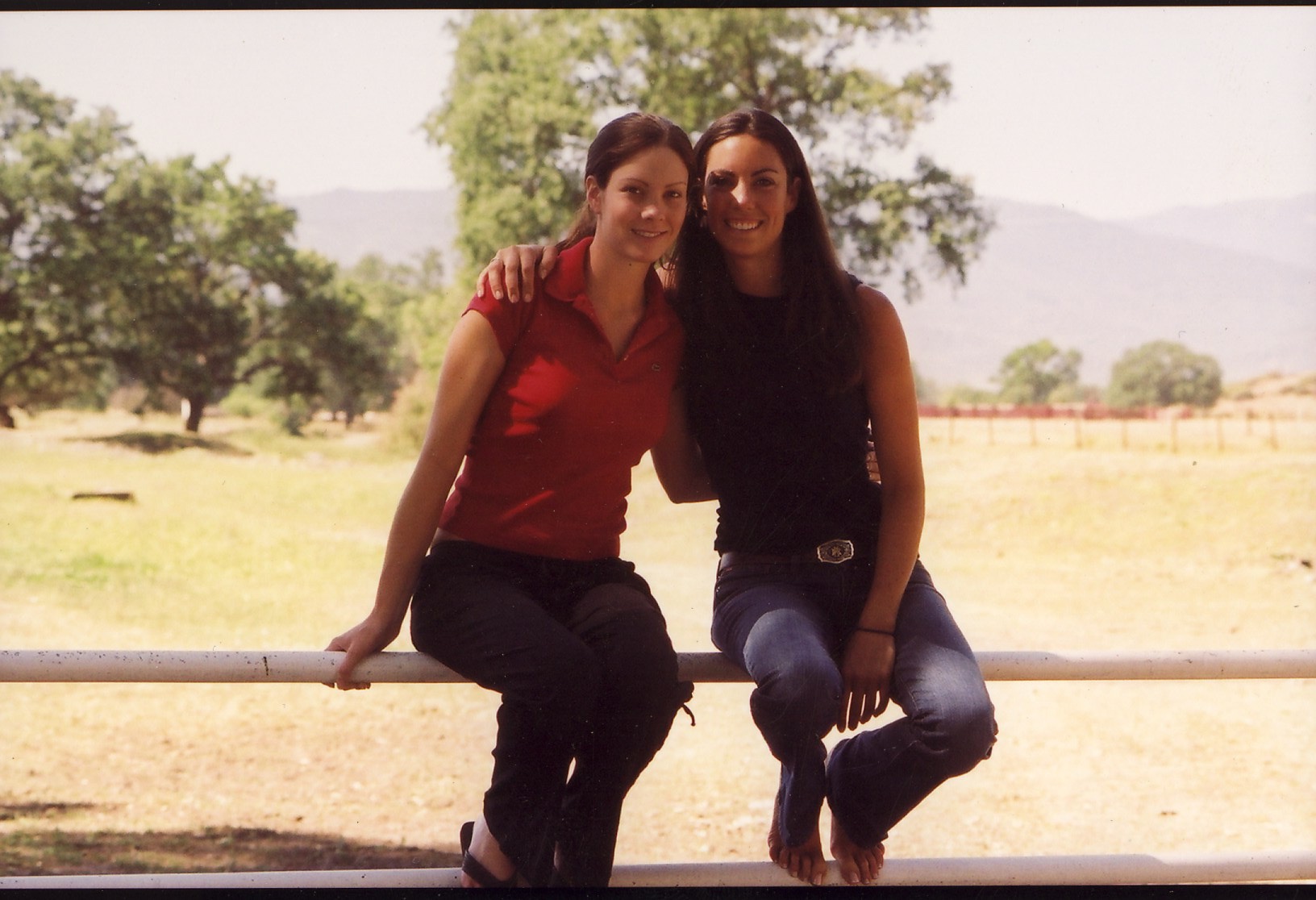
Ann: We always laugh about this because my husband Pat is actually a little bit older than Mary. So whenever we talk about these years, I’m like, oh, yeah, Pat would have been out of college.
So I graduated from eighth grade and went, you know, off to the same high school that Mary had gone to the little Catholic school in our town. That it was a sacred heart school. But you know, a California version of a Catholic School, which is pretty easygoing, co Ed, no uniforms. And I had an amazing experience there. But looking back, I realized just what was really going on in the world of tech at the time, I mean, I had, we had everything we could ever need as kids, we were very fortunate. But there were families with multiple homes and planes, and, you know, just living a very different lifestyle. And so we were exposed to that I was exposed to that very early. And it was such a good lesson, because our parents were so just friends with everybody, did not care who did what, you know, didn’t focus on,
Mary: They never got wrapped up in it
Ann: Never got wrapped up in it. And if any of us had gotten wrapped in it – wrapped up in it, they would have very quickly, kind of, you know, told us that we couldn’t hang out with those kinds of people anymore. If we’re acting like, you know, wealth was more important than integrity, and just being good people and good friends.
Mary: Yeah, and growing up. I mean, we were very fortunate. But you know, we still, my dad worked really hard to provide for us. And it must have been hard for him. I mean, to like, feel like he had to compete, because there were so many people that were just all of a sudden, like, the world was changing. And you know, there’s a lot of income levels in Silicon Valley that are crazy. But I think that’s what we saw is my dad’s work ethic was, you know, he was up at five in the morning, every morning, his car was the first one in the parking lot at work every day, he would still come into all of our rooms before he went to work and give us kiss goodbye. And you know, you’d get home in time for dinner, but he worked a lot. And he really instilled in us that like nothing is going to be given to you, you know, there I remember there were times asking for something. And we just look at me like, “yeah?” like, “you’re gonna pay for it?” And it’s like, yep, I need a little, I need to work a little more.
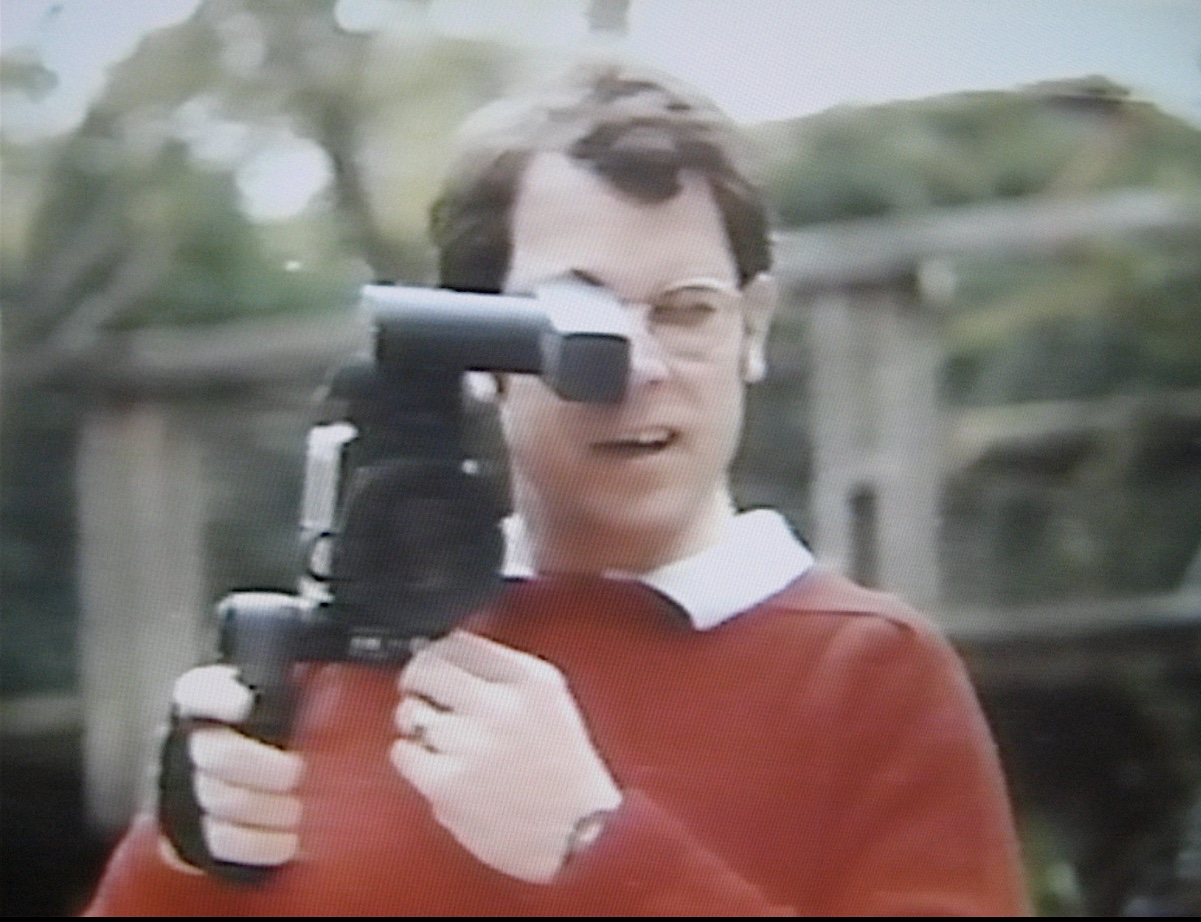
Ann: I had maybe a little less of that being the baby.
Mary: That’s true.
Ann: By the time they got to me, there was a little more, you know, spoiling going on but there were plenty of times when you know, I had a job in sixth grade sweeping hair at the local hair salon, and I remember loving it like being like, I can make my own money. And my brothers, our brothers, were coming in stealing money out of my drawer constantly. Because I had a little you know,
Mary: You were the bank!
Ann: They called me the Bank of Ann.
Mary: They had told my mom for weeks that they’re just getting their lunch money from the B of A and she’s like, “oh, there so responsible getting their own money out of a debit card.” And she thought the B of A was the Bank of America, but they actually meant the Bank of Ann.
Ann: Yes. And they owed me a lot of money. So that was the earliest days. I wonder if I charged interest?
Mary: Our brothers worked at the gas station.
Ann: Yes, I remember begging dad to work at the gas station. Mostly because I thought their uniforms were cool. And he was like “no, you’re a girl.” I think I was like 14, like you’re not going to work alone at the gas station.
Mary: You had to work in the dark, like the five am shift and, but we all had jobs. I had two jobs, all of high school, I did my own kind of entrepreneurial stuff. I did Mary summer fun camp in the backyard that and was a camper. My mom was always super helpful. I remember coming up with these crazy ideas. And she would never say like, “that’s too much work.” But like, I can’t imagine how much work that was for my mom, for me to have 30 kids in her backyard all day during the summer. But she was, you know, in there baking bread with them and making lunch and she was always really supportive of, you know, encouraging us and helping us to kind of learn to provide for ourselves.
Ann: Yeah,
Mary: But we all had jobs, which was not the norm.
Ann: No. And I think when we talk about like the good old days, if you think about that, like childhood growing up in that street, I mean, we had neighbors who were best friends, and we just went back and forth between houses. Our mom did the afternoon pick up the other moms in the morning because Jannie sleeps in and we love that. But it was like, we just had a lot of freedom, but also, you know, expectations with the responsibilities that came along with that. But we were so encouraged to try things out and you know, figure it out and solve your own problems. I think that resourcefulness was something that our parents like inadvertently taught us that was going to lead us to this entrepreneurial life.
Mary: Yeah, and I think, you know, we – our mom was a stay at home mom, but she was like, the best at it ever. Yeah, but she also had her own life. You know, she loved to socialize with her friends. She was a super crafter, sewer, knitter she was always getting together with different groups and working for the schools. But, you know, our parents like loved to socialize and have dinner parties and see their friends. It wasn’t like we were the center of the universe, you know, they were kind of taught like, I think it’s similar to what we do now. You know, more with work and with socializing, but like, we have our own lives and our kids fit into that life. I remember the pediatrician told us that, when we first had Francie that like, “okay, this baby’s coming into your life. You’re not walking into hers.”
Ann: Yeah, that’s not the message very much anymore. That’s a good pediatrician.
Mary: Yeah. That you have to as parents, you know, keep that, first and foremost. And I think it models for your kids to grow up and do something productive not, you know, cater to your kid’s desires.
Ann: Yeah, there was definitely a message like, obviously, we are the center of their world, they loved us so much. And we’re so good to us and gave us everything. But it was not the message that we got to make all the choices like we’re the parents in the situation, you guys with the kids, here’s some, you know, rope to run around with. But all in all, like, they did have their own lives. And it was more important for them to be able to teach us those lessons and not to do everything to cater to us. And I definitely saw growing up those families where the parents had worked really hard to earn this lifestyle. And then the kids all of a sudden became in charge. It was like, they’re kind of spoiling themselves by spoiling their kids.
Mary: I think one thing we really noticed too, was you know, as the years went by, and kids were parents really catered towards their kids, and it was really like about everything was like, What activities do you have this weekend, and it’s about birthday parties and keeping your kids entertained. Where we were like, here’s some dirt and a golf cart, go have fun, for five years.
But you know, I think it really sets a standard when kids graduate from college when they’ve just been catered to the entire time. There’s no place to start. There’s no starter job out of college, where you’re catered to by anybody. And you have to really learn to climb that ladder yourself. And I think you’re setting kids up for failure. When it’s all about the kids. It’s all about you know, entertaining them keeping them happy keeping them engaged.
Ann: Building a resume
Mary: It is yeah. And then, you know, they they flop in the world like wait, who’s catering to me and I’m not living in this crappy apartment, like I lived a lap of luxury my whole life. And I think that’s really important. You know, when – my parents bought an old house, so I was nine. You were one.
Ann: When we moved in, I was three but I guess, was I that young when they were –
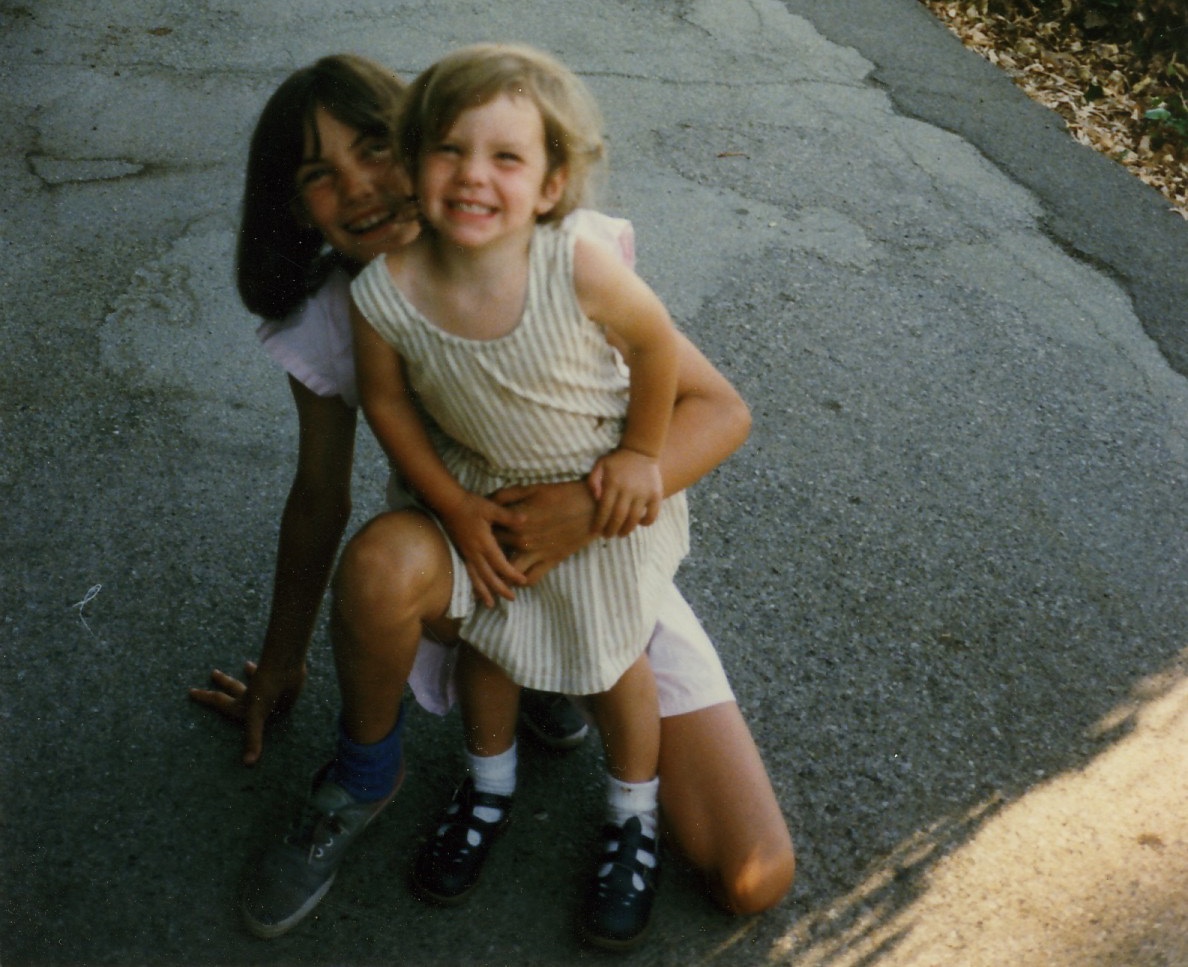
Mary: When we bought it, yeah. My mom loves old houses and historical things. And she found this old house above blocks. It had 175 broken window panes, and it was set for demolition, which in Silicon Valley is you know, all you do now is demo a house and build a new one. And my mom found this house and was like, “I want the whole thing. I want to restore it.” And she asked the guy at the demolition sale if she could buy the house after – she must have called dad at work. “Okay, here’s what I’m thinking.” – Dad was a saint because he went along with this. They bought this old house, no plumbing, the chimneys had fallen down, the windows were all broke.
Ann: There was a beehive the size of refrigerator in one of the attics.
Mary: Yeah, because the lady who lived there had eaten TV dinners and thrown in an attic for years. And it was, we call it the haunted house. We were like scared of it. But also thought it was kind of cool. Yeah. And my parents bought that house and then bought a lot on the street and we moved to the house. I’ll never forget that day. We got to stay home from school, it was raining, and they’re moving this house on plywood and all these wheels and it took us a long time to fix that house up. So we rented a little two bedroom house while we were fixing it up. And honestly that’s partly what’s kept Brian and I in our tiny cabin is because in looking back on my childhood, those years and a half in that two bedroom house with four of my siblings on the same room was like some of the most memorable days of my life.
Ann: Yeah, those were some of my earliest memories, like little flashes. I mean, I was like two or three, but I can physically remember being in a sleeping bag on the floor or watching TV in that living room. And being in – we slept on mattresses in one bedroom on the floor.
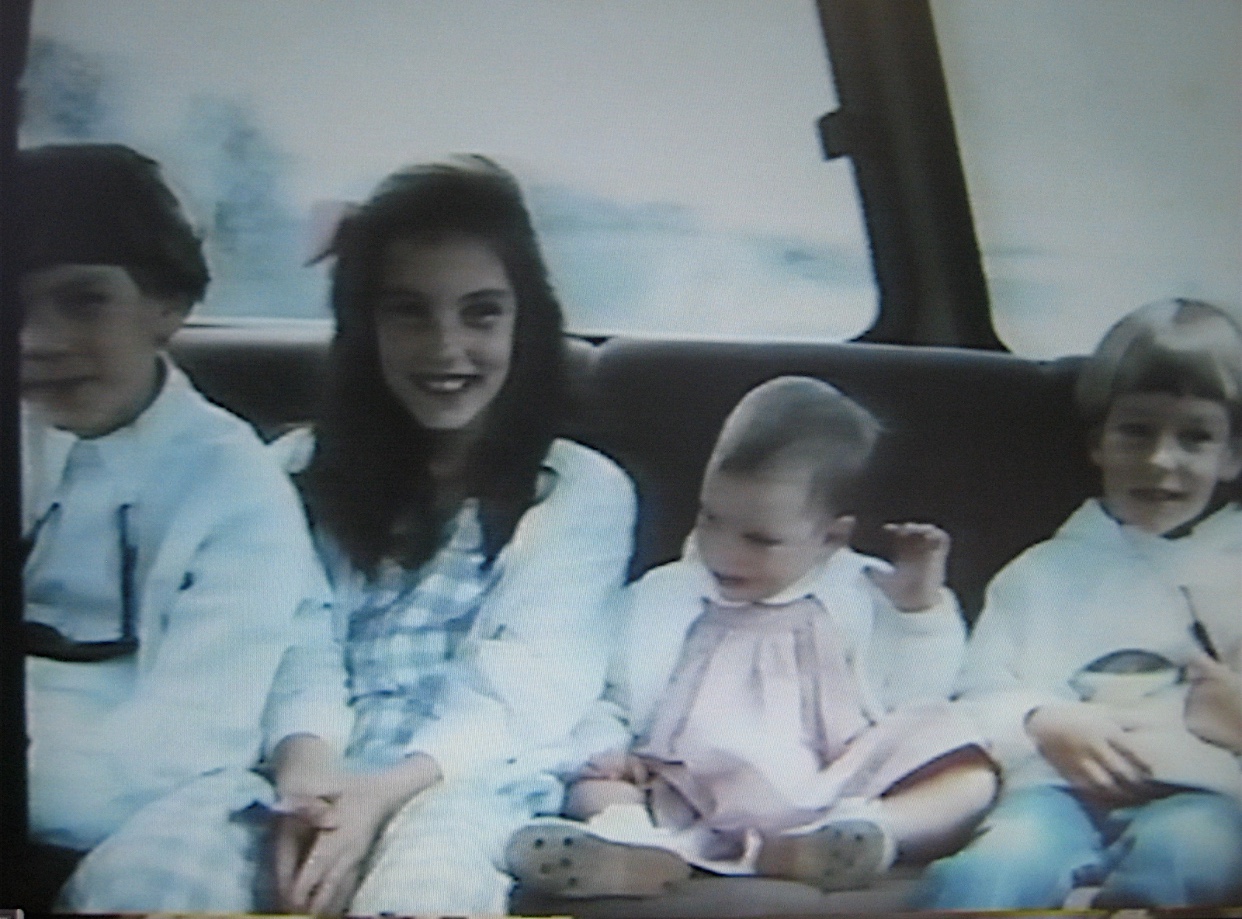
Mary: I was always like, using graph paper to figure out how I could rearrange the mattresses. At one point your crib mattress was like at the door and you were rolling into the bathroom floor and dad would come in and pick you up and he’s like, Mary, you have to move the baby’s bed. She’s like sleeping on the cold tile.
Ann: Yeah. Anytime I hear about people like renovating a house now. And I mean, I would fall into this category. You know, people think “oh we have to be comfortable and have everything we have.” And then I think like my parents did it with a two bedroom house with four kids. I don’t know how they did it, but
Mary: And we loved it. It was great.
Ann: Yeah, kids don’t care about space. I mean –
Mary: And when we moved into the house that they live in now, which is beautiful. We love going home. We love that house, but it literally took 20 years to get to that point. When we moved in it was like barely they were barely letting the electrical be turned on.
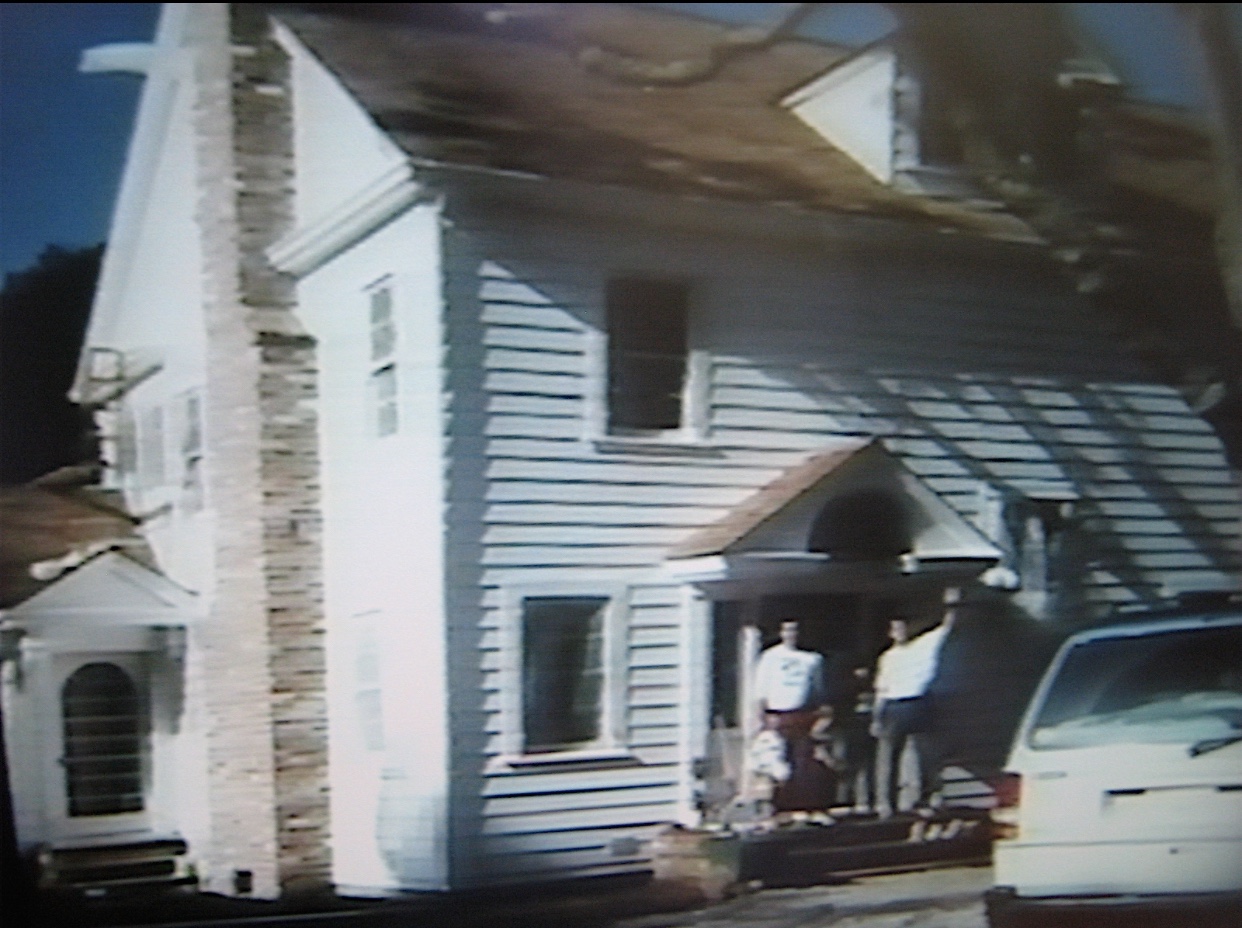
Ann: Longer than that because Jannie wanted to redo that kitchen. You know, our home. And she finally got her like dream kitchen reno when I had Brennan. So I was 27. So it took 24 years.
Mary: No, it’s true. It was just doing a little bit at a time as they could do it, you know, on the weekends, one little project at a time but that also, I think taught us a lot of you know, you don’t just get what you want when you want it. Mom had to prioritize like, what projects do I need? And what do I want done? And, you know, we were kind of along for the ride. But yeah.
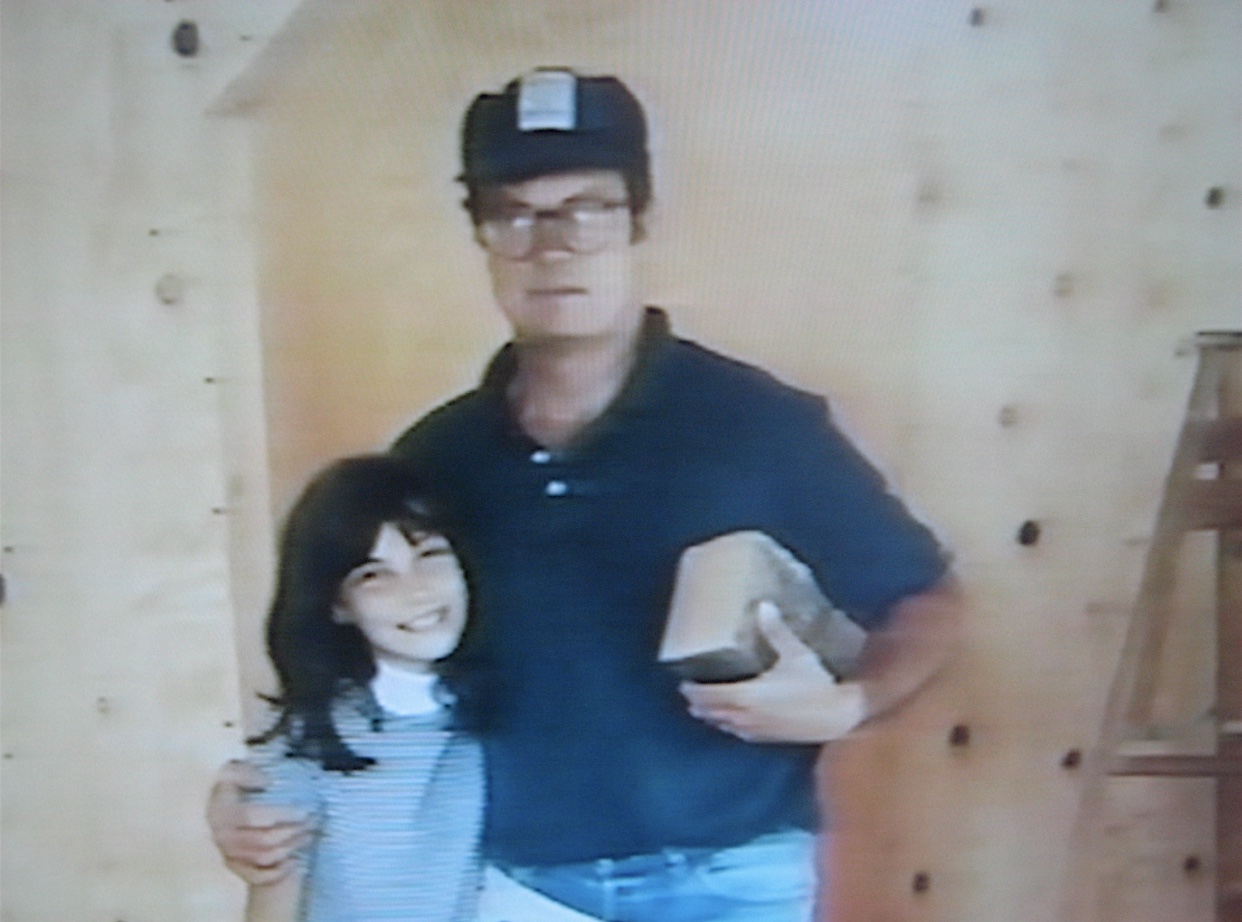
Ann: Yeah, that’s such an amazing example. The other day when I was visiting mom, dad, like mom showed that window in the den, that little room. And she said, “oh yeah, we couldn’t find a window that would fit there.” So I went to, you know, basically not a junkyard, a salvage yard and got, I think it was a door, a french door, with glass that was gonna match up and she had her, you know, guy cut it down and put it in, and he was like, laughing at her, but it worked. And, you know, versus somebody being like, “oh, we have to get a custom window.” I mean, yeah, it was resourceful and figured it out and made sure that it kind of went with the period of the house because it you know, it takes a lot to restore a home that’s that vintage.
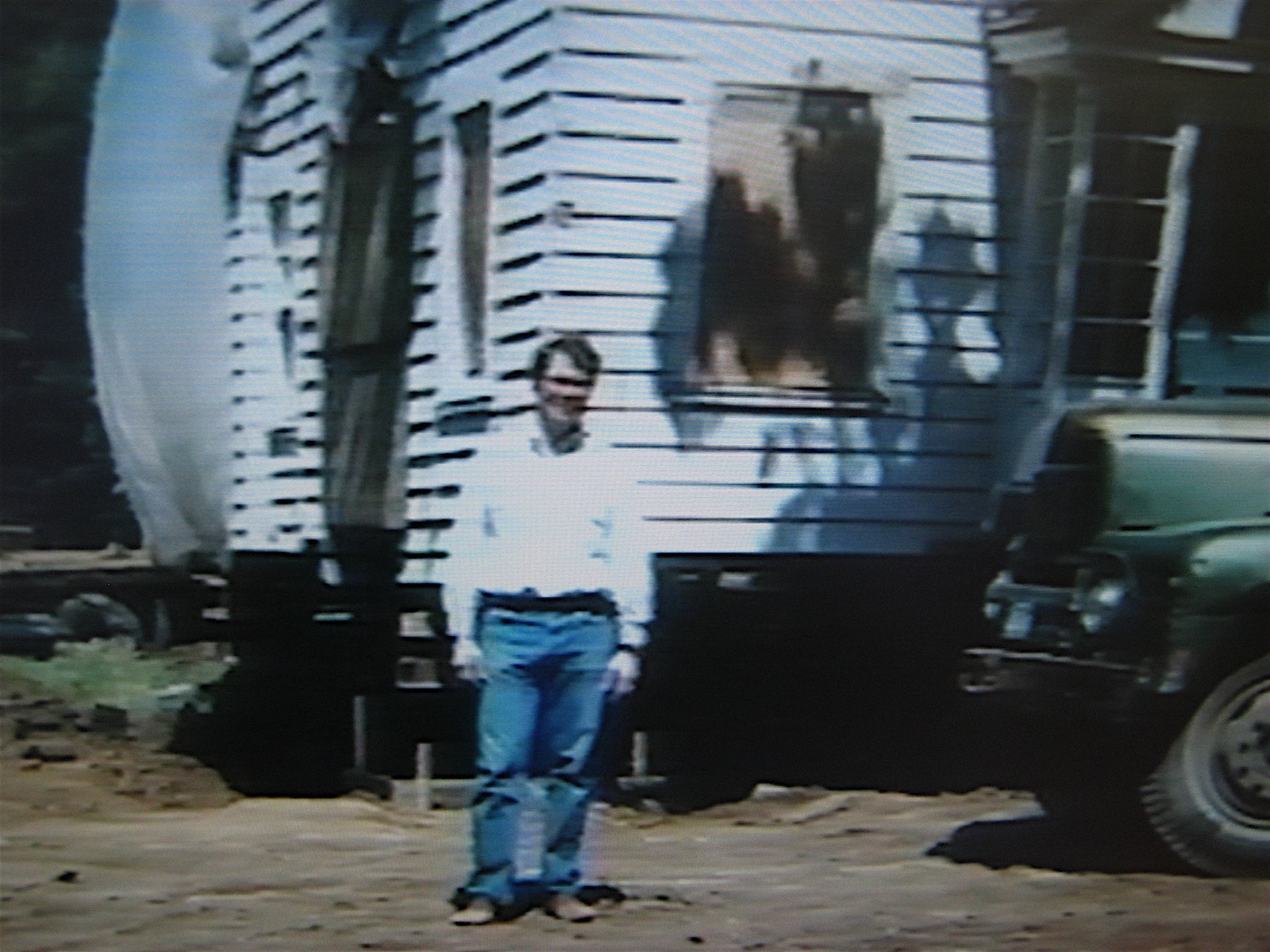
Mary: Yeah, and really make it – do it well.
Ann: And they did it really well and did it the right way. And it takes like being our age now to understand what that actually entailed. Right, while having four kids running around.
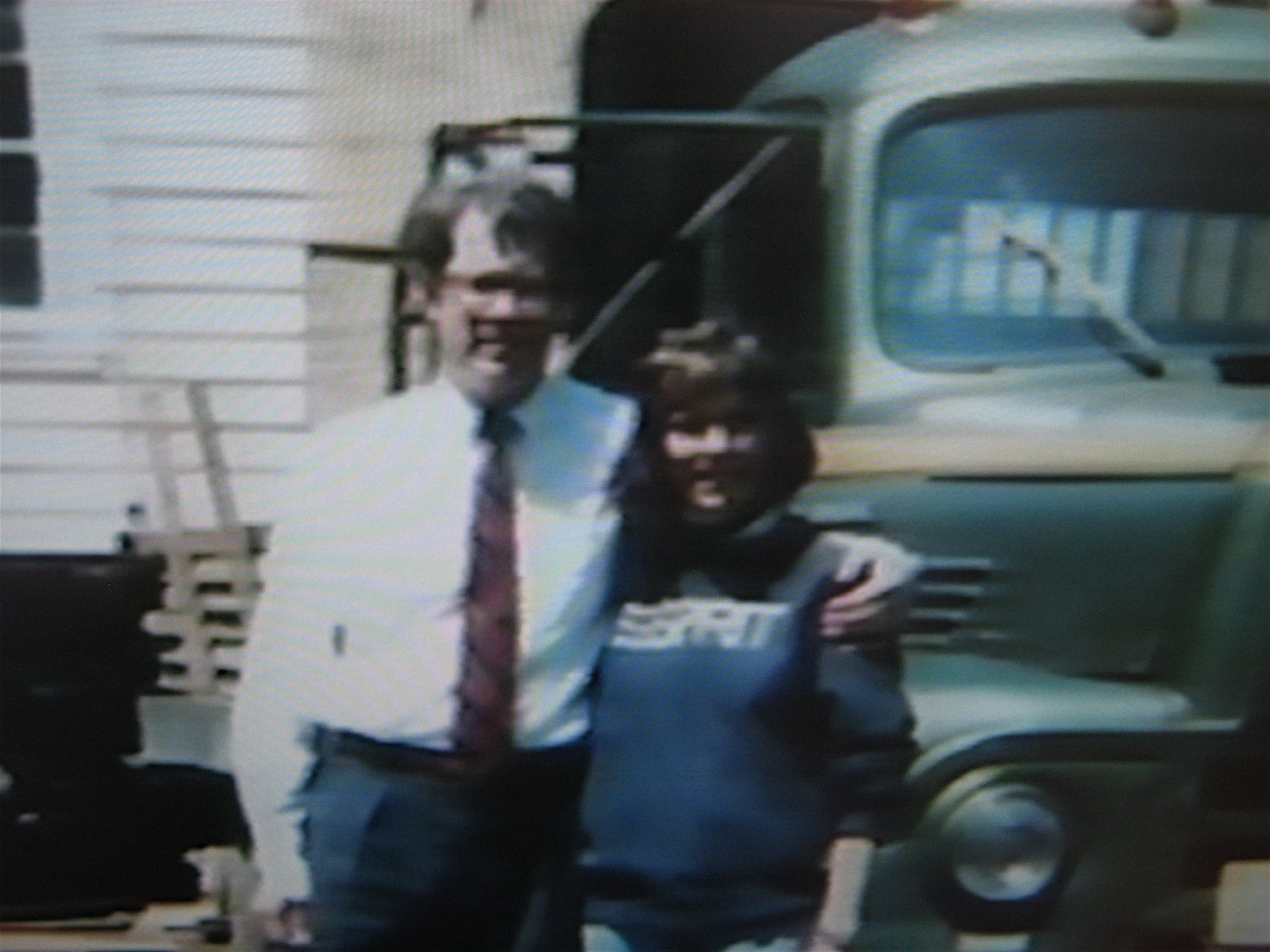
Mary: Yeah, it took 30 – 25 or 30 years to get there. So in 2000, I moved back. Ann was just entering High School. And I think that was actually a really fun time for us. Because, you know, growing up, you were like, I was your second mom, I would wake up in the night, and get you bottles, like I loved having a little baby sister. And then by the time I was in high school, you were kind of like, an annoying little –
Ann: Excuse me? Yeah, I had to pay the fee to hang out in Mary’s room, I had to rub her feet, not like for 10 minutes, like the entire time. That was the only reason I was allowed to be around her when she was really cool, because she was the yearbook editor. But then, yes, those were our golden years, it was like Mary came back from college and would bring me lunch at Sacred Heart. And “oh my sisters bringing me lunch today.” And I would get to have lunch with her. And my friends were like, “that’s so cool.” You know, “your sister has like a business” and she pulled up in her lifted, Jeep or lifted Tahoe at the time. And that was definitely a lot of fun. But I mean, a lot had changed in that amount of time and –
Mary: Yeah, I remember being worried about like, the kids you were hanging out with, because it was such a different, you know, vacations and yachts. And I, when I went to that same high school years before all my friends’ parents were plumbers and tradesmen, and then all of a sudden, you are surrounded by CEOs of all of these huge companies and living the life a high schooler shouldn’t.
Ann: Yeah, I was exposed to I mean, I’m so grateful, because some of those experiences and travels that I got to do with friends in high school were unreal. But they were, yeah, I got to travel around the world and go on these trips. And I had been on private planes, which is something most people don’t get to do in their life. And my parents the entire time were like, “the second you get an attitude about this, you are not, you know, going to be going on these trips.” But it was such a good lesson for me because granted, those were all great friendships and like I have, you know, had so much fun with those friends, but I saw some different family dynamics and what that kind of wealth can do to your family, and you know that it’s not all good, you have growing up with that much excess so quickly, can be a bad thing. And it also reminded me like my friends, even the ones who had, let’s say, more than us, they still wanted to come to our house after school, because they knew my mom would be there making a huge bowl of popcorn with an entire cube of butter, (Mary: or two), or two, and that she was like present and that our house was like safe and, you know, just felt like a home. And that stuck with me for a long time. Like, yeah, they still want to come to our house, you know, even though our house didn’t have the dream kitchen, or we weren’t the kids with the pool or all of the amenities. It was still like, people were like, wow, you have such a great place to come home to your siblings are so much fun. And your parents are great. And your parents are home and you’re having dinner every night. Like that’s what felt like the thing that I took with me was really important.
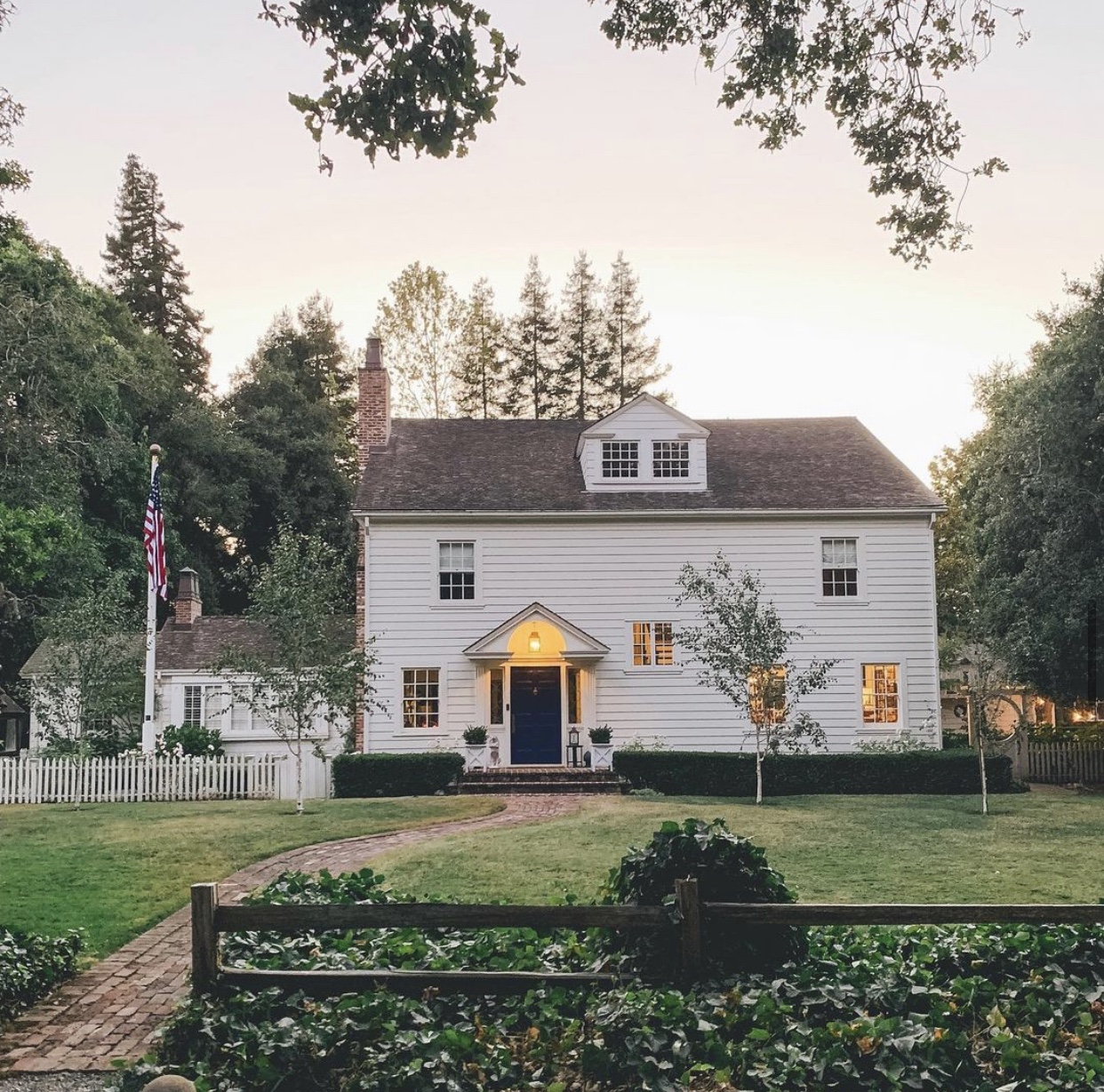
Mary: Yeah, I think if anything I really learned from being there, especially as an adult with young kids is that money does not buy happiness, and bigger houses does not buy happiness. And you know, when Brian and I were in our first little starter home that was actually a little bigger than the house we live in now. I remember by the time we had our second daughter, Maisie, I was like, “wait, we’re supposed to grow into a bigger house,” like where are we supposed to put all this stuff and, you know, I, we were just kind of caught up in that like, well, this is what you’re supposed to do is like, buy bigger and have nice family vacations and are working so hard to do all these things that we thought we were supposed to do. And you know, we were in service based businesses working hard and a lot of our friends were in much higher income brackets than us and we we were always working hard and trying to you know, not not compete with them because we could never but just like trying to live that lifestyle and then we kind of made it a lot easier to make the decision to leave that because we were the happiest in that little house. You know, we loved our neighbors, everybody would just, you know, hang out in the cul de sac and have beers. We didn’t need more space. But once we kind of got caught up in that, like, wait, this is what we’re supposed to do. Right? It felt like something we had to do. But the people that you see, you know that you think have it all. They don’t have it all
Ann: No.
Mary: And that is really made clear when you see these extreme wealth divide.
Ann: Yeah, I think that was just a constant reminder. And it’s been so helpful looking back on that in our businesses, like, yes, you want to grow, and it’s exciting to have more customers and some more things, but like revenue doesn’t equal success, like write ups in magazines don’t equal success. It’s like, Can you go home at the end of the day and feel good about what you did? And how you did it? And are you prioritizing the things that matter and our parents like surrounded us with those kinds of people like my godmother, Ann, comes to mind, our mom’s best friend, who passed away when Brennan was six months old. And but, you know, the Skidmores, they were like, one of our parents’ best friends, and they would take each other’s kids. And they, you know, had plenty they had a beautiful home, they worked really hard for it. But there’s just never any competition. It was very, like, you know, they did supper clubs and, just kind of all felt like they were on the same playing field and never remembered at all that anyone was talking about what anyone else had, it was very open and sharing. We all went to the same schools. And I just feel like that’s missing a little bit now.
Mary: Yeah, I think it’s more rare. But you know, when you find those friends who have the same priorities as your family, and you know, they fit in like family, that’s just something to hold on to. And we are lucky, we do have those families that we grew up with in the area because we knew them since you know, we were little and we made – my parents are great at maintaining friendships. And there’s a lot of great people who live in the Bay Area. I think I just commend them for raising kids there because I think it can be a lot harder, even though it’s the land of opportunity. It’s – there’s a lot of filtering that you kind of have to do. And that’s hard, it’s a lot of work.
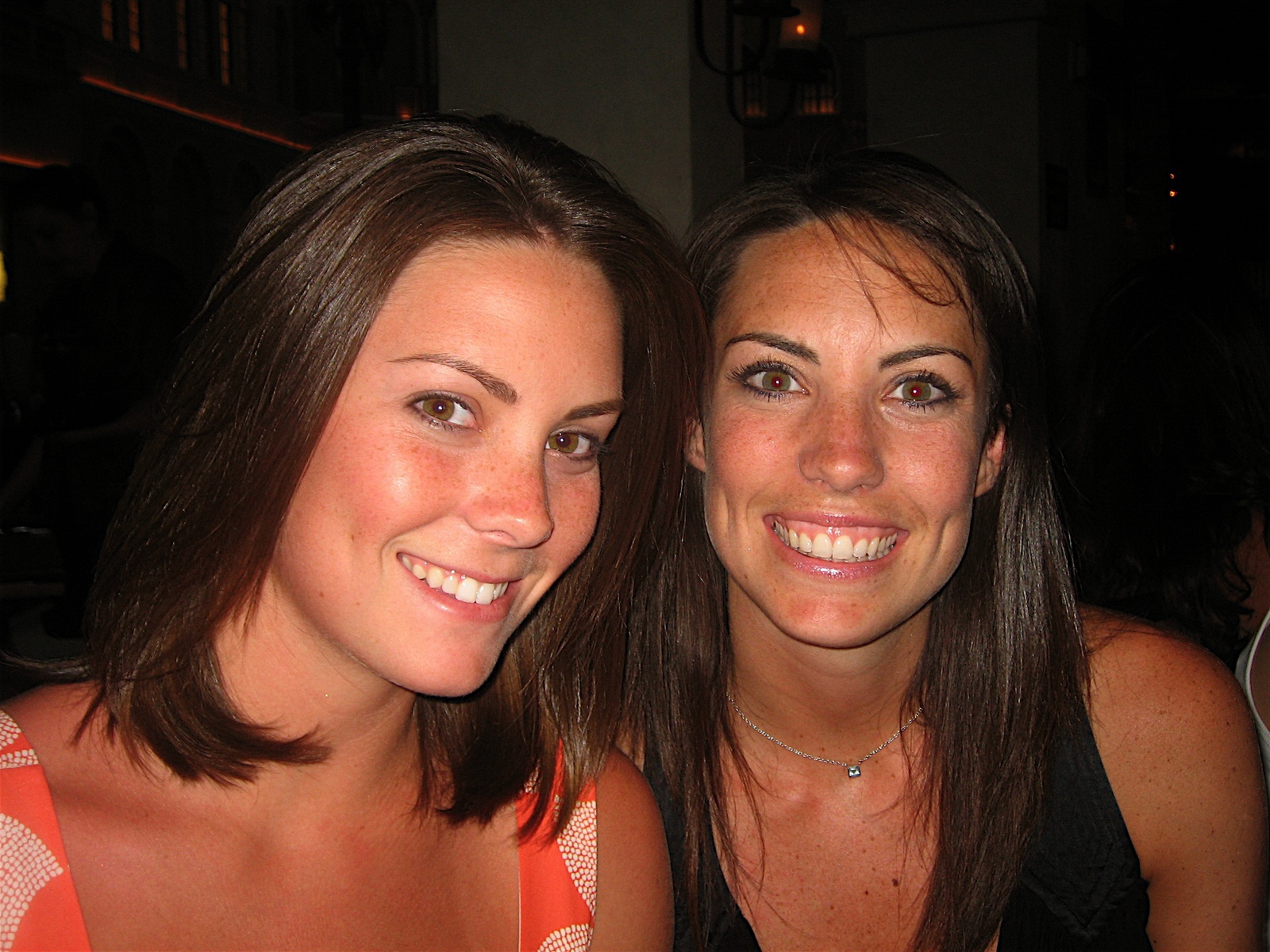
Ann: Yeah, I think I mean, I get, you know, we’d love traveling out there. It’s beautiful, if you can afford it. And it’s, especially when your parents are there, and you’ve been there for a long time. And but it can feel like a rat race. And I think it’s just remembering like, what goal you’re reaching towards, is it a bigger house? Is it this, that, or the other? What dreams are we pursuing? and for me, it was kind of an, I’d say an easy out in that I went to Vanderbilt, fell in love with Nashville. I was like, Wow, this is so cool. I felt like it was a big city that had an airport. So I could always go home. And I left for college saying I’m going to go to Nashville, because I will never leave California. Like there’s no way I’m not gonna live here. And then I met my husband in a bar and was like, You know what, I kind of love this town. And this guy seems great. And he’s from here. And just felt very, like, easy. And I had the scope of wealth knowledge from the Bay Area. So that when we bought a house, I was like, you can buy a house for you know, only this much money and you can send your kids to private school. And it all felt like just a little more attainable. And I still felt like it was kind of going back in time a little bit because there were some opportunities there that we could kind of get in at a different level. We love Nashville, and I also love California, but it taught me that juxtaposition. You know, when people say Nashville is getting so crazy expensive. I’m like, let me tell you look at a listing in, you know, Menlo Park, and you will be surprised.
Mary: Yeah, and I think it’s true everywhere. Now, you know, it’s not just because it’s Silicon Valley. I think so many – our culture is just designed now to think, well, let’s, let’s keep up with the Joneses. You know, let’s keep getting bigger and better. And that’s nothing new. It’s been around for decades. But I think it’s really important to remember that when you step away, you look at what priorities are important to you. And it’s the memories you’re making as a family and it’s the you know, the gritty days and the late nights on the couch and good meals together around a table. And those are really the things that you remember about childhood and then I want to make sure I’m giving my kids and those things don’t cost money. They don’t it doesn’t matter where you live. But that’s in my opinion, kind of the secret to life.
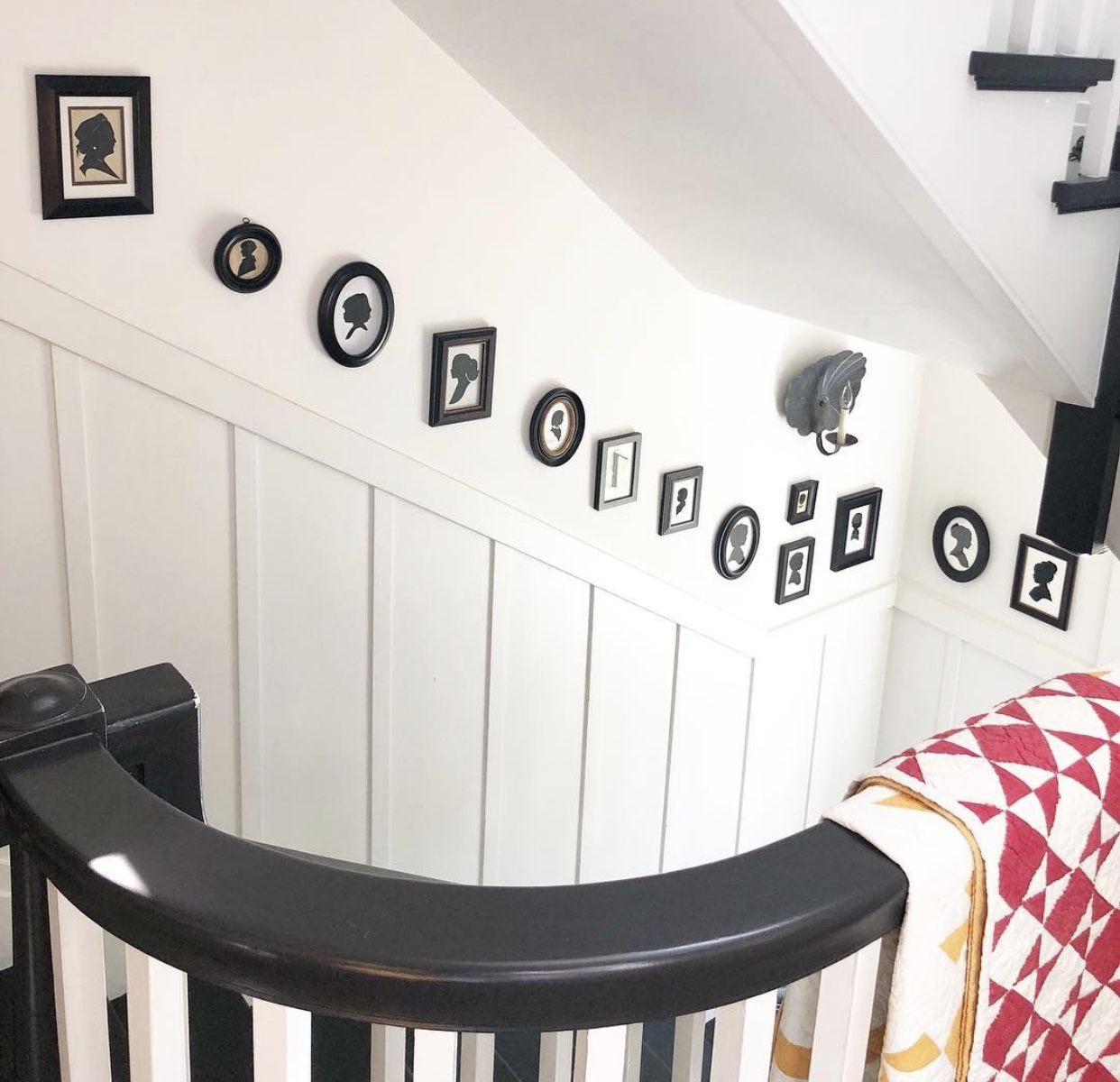
Ann: Yeah, I think we we know that because we felt it in our own you know, childhoods that I just remember like some of that furniture we had for so many years that you know, Mom, I’m sure she wanted to redecorate and do this that the other but it was like our kids are doing handstands on the couch and you know, we’re running around the yard that didn’t have grass over the backyard which is like weeds for years but they weren’t stressed about what anyone thought about the yard and they also knew that we were fine and we were having a good time and you know, I think it’s so easy to get caught up in like, “what are the what are the neighbors gonna think?” “we haven’t done our landscaping” or, you know, worry about some of that stuff and I live in a much more suburban area than Mary, obviously. But I remind myself like this past summer, or during quarantine, we put in a stock tank pool in our yard, which is like, kind of redneck. It’s like, you know, let’s put in something our kids are going to play with who cares, it’s not a real pool. And it definitely looks gets kind of gross. And we have to filter it out. But they had the best summer with that. And it was, you know, 150 bucks. And it was just a reminder, like, the kids are gonna love this. It’s fine. It’s temporary. Let’s like lean into the stuff they enjoy doing. Who cares about the wet floors, who cares that the yard doesn’t look perfect? Like just
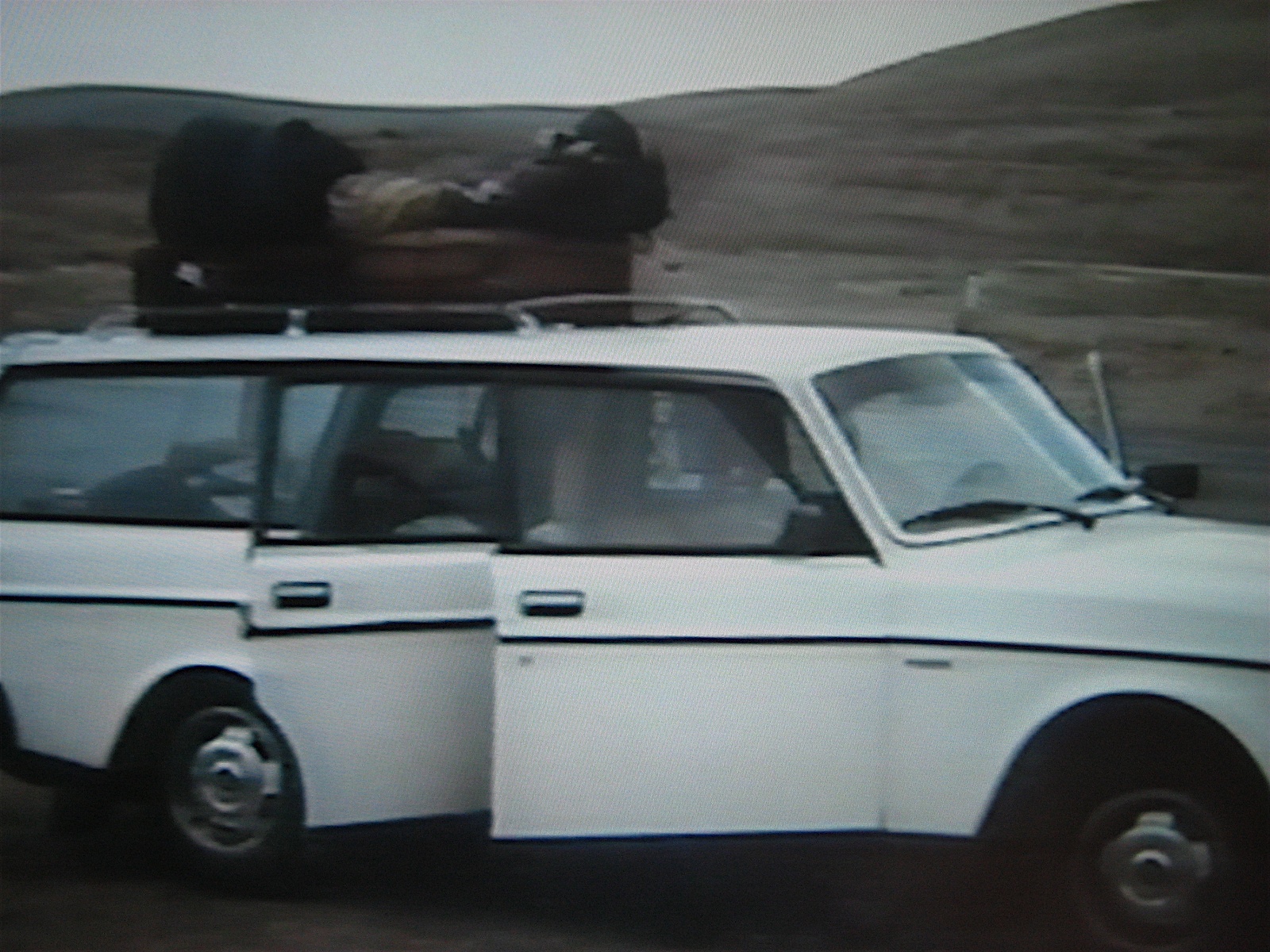
Mary: Yeah, they don’t need much. And I think, you know, it is easier said than done. Because I remember those feelings, being a small house thinking I’m bursting at the seams, I need more space. And it wasn’t until we, you know, took the steps to work harder and save more money to buy a bigger house that at one point kind of looked around like, gosh, this house is beautiful. But I kind of missed that that small house. And then now that we live in this tiny house, I have no interest in wanting a bigger house. Because I’ve you know, done that and seeing that it’s not going to make me a happier person or make my family happier. But I do think it’s hard. You know, it’s so easy to be like, Oh, just appreciate your small house and the memories you’re making. You’re like, yeah, my cupboards overflowing. But it’s, it’s a lot easier to look back and say to say it in hindsight,
Ann: And I will say we have a little more square footage because we’re in Nashville. So I’m not knocking a larger house because it can be nice to have all your stuff somewhere. But it’s also with the knowledge that that’s like an investment long term for us. And also, you know, we spend most of our time together as a family on one couch. There’s one couch in the house, my girls curl up on, they asked me to sit with them and watch TV. You know, you feel like oh, we have a upstairs, you know, playroom, and this, that and the other they are they end up under your feet. However many square feet you have, which is a good thing.
Mary: I think it’s so funny how people just really have that expectation though that you’re happier in a bigger or nicer house. Cuz remember last time I visited you, and a couple people on Instagram were like, do you feel bad that your sister’s house is so much nicer? And then I was like “no I don’t, I’m really happy for her.” I love visiting her house you know, it’s totally different styles, right? Yours is minimalist and white and spacious. And mine is like cluttered and saturated and cozy. And yeah, those are those are the lives we live right. But I don’t feel any like, Oh, I wish I had more square footage.
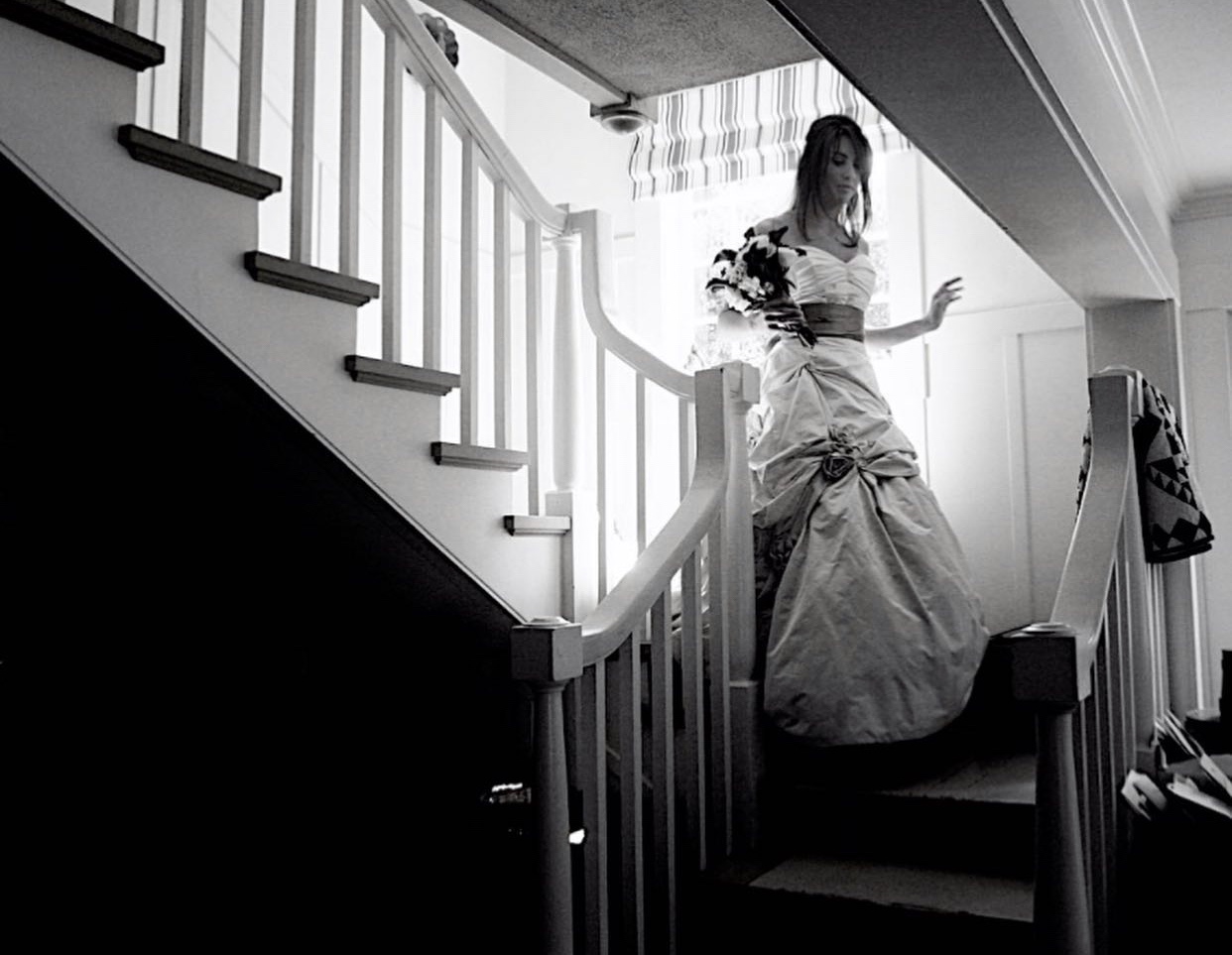
Ann: You could do it if you want to. But I think that is a little bit of a something that’s going on right now, especially on Instagram, is assuming that because someone has something different than you they think you should have it too. Like, I can call Mary and be like, oh, guess what, we bought this house and this is how I’m decorating it and she’s excited for me and it’s like that’s so fun cuz she can tell I love it. But I’m not telling her she should do it or that she’s living her life wrong by not having the same things I have. I think we all need to let that go.
Mary: Yeah, and just also you know, love what you have, like make the most of it, take a space throw or slap some paint on it and move some furniture around. I know it’s easier said than done. But I think it’s just we’ve we need to get away from this like, oh, gosh, look what they have. It’s bigger. It’s prettier. It’s shiny, or it’s cleaner. It’s not a competition and life’s about the memories. It’s not about the pretty photos you put on Instagram, right? You know like what are your kids going to remember? What I remember from my childhood are those days crammed together on that floor and our mattresses and running around the mud because we had no landscaping and those are my best memories.
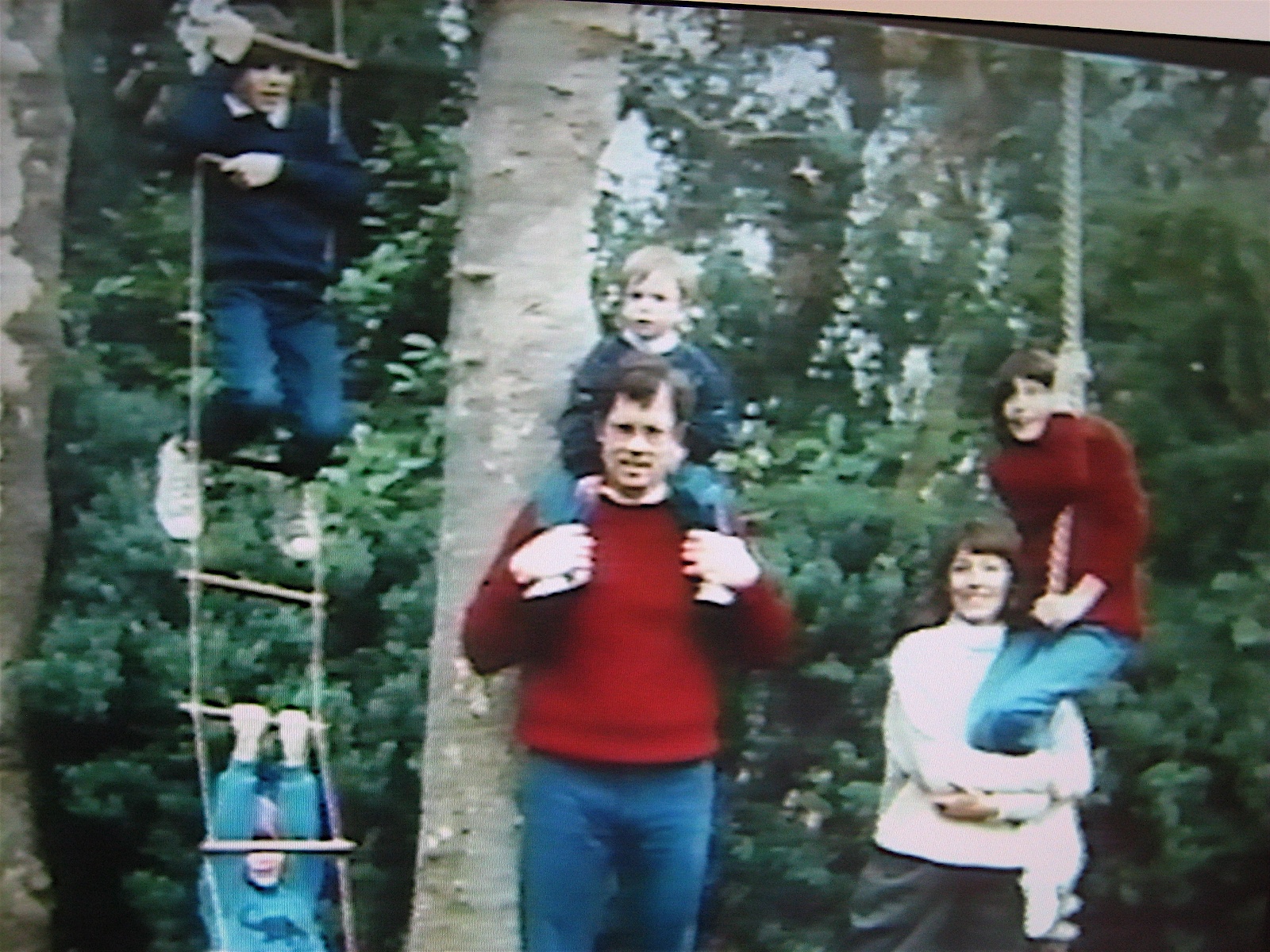
Ann: Yeah, and Mom, I remember those nights were like, so our mom is a total night owl which is where we get it.
Mary: Like a 2am Night Owl.
Ann: Yeah, like serious night owl. Ah, I won’t tell her age but a shock because she looks so good. But I remember at like 10pm her being like she would just get this like inkling, “do you want to move your room around?” or like, yeah, one time she let me stay home from school to paint the floors in my room. And I mean, she would be like, “oh, is that a cough? Are you coughing?” I’m like, “yeah, mom, I think I need to stay home.” And that was another thing that was so fun about growing up that house like, I mean, she’s such a great mom, but like she wanted to be with us, I think because she prioritized having her time in her life too. But yeah, like a sick day was not like, oh, you’re home and you’re in my way. She was like, “do you want to paint this thing with me?” And she gave us – we could sew and paint and like there was a room in the house at one point that had the board that didn’t have paint. We just wrote all over it.
Mary: Yeah, she gave us tempura paints and we just like graffiti’d that was, that was so much fun.
Ann: I mean, just having that freedom and having everything didn’t have to be perfect all the time was really fun.
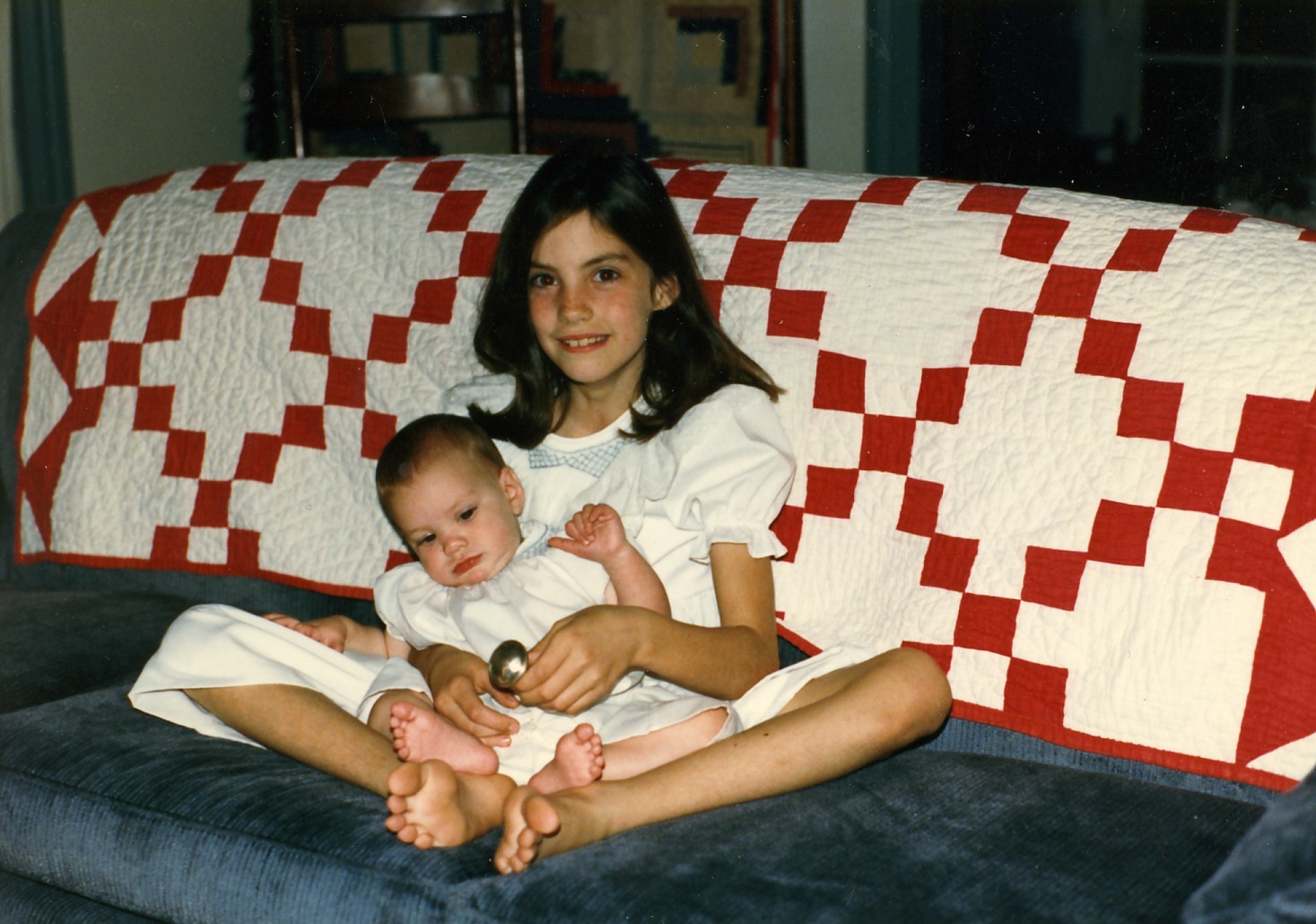
Mary: She really modeled like, not keeping up with the Joneses. Like I’m creating a home here and it’s going to be cozy and although she has fabulous taste and her house is beautiful. It was it’s always about where are my people going to be comfortable? Yeah, and I mean that’s what everybody in our family says my aunts my cousin’s like, the food tastes better at Jannie’s house, the sheets are cleaner at Jannie’s house.
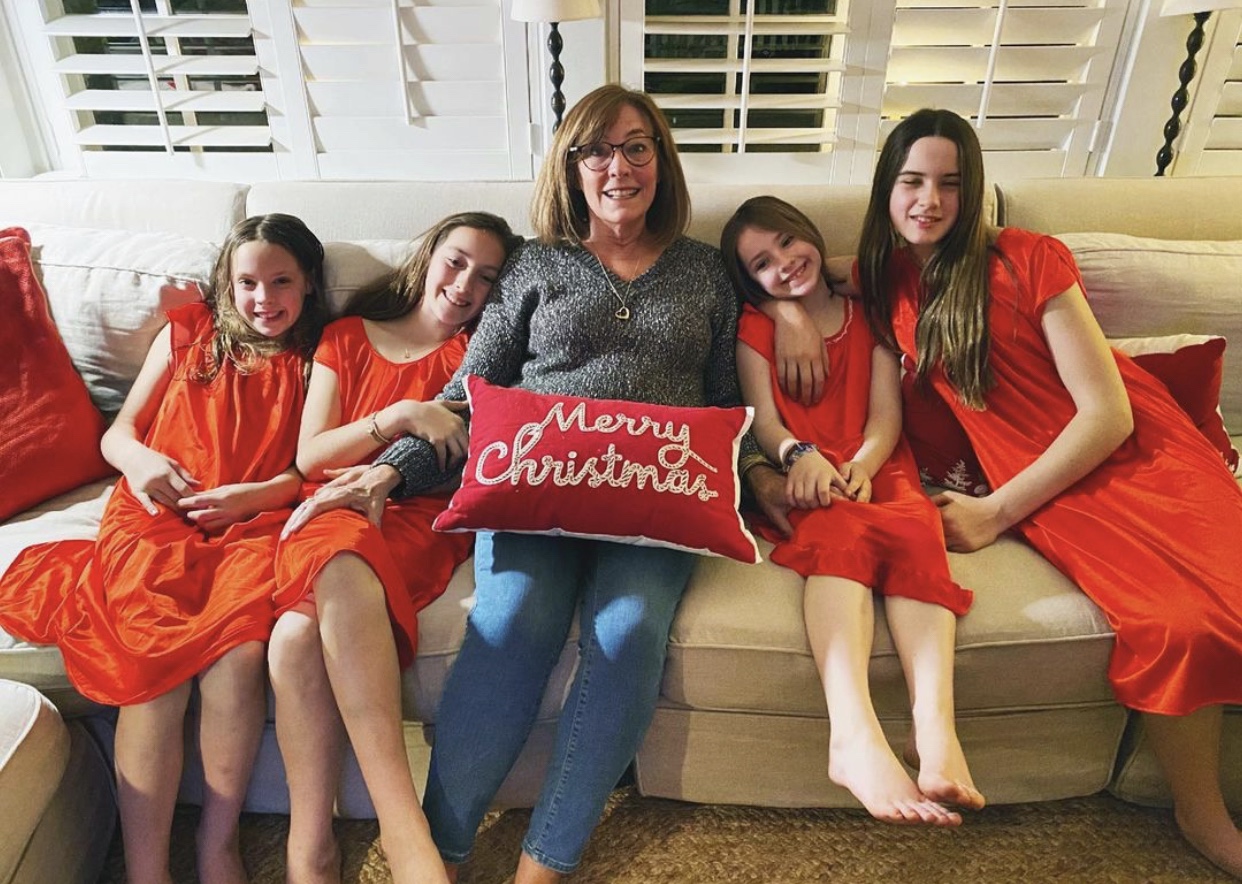
Ann: Yeah. There’s something about how fluffy those beds are.
Mary: She makes everything that cozy. And it’s because I think she doesn’t stress about how this looks to the outside, she just focuses on making a welcome place where anybody who walks in the door feels welcome.
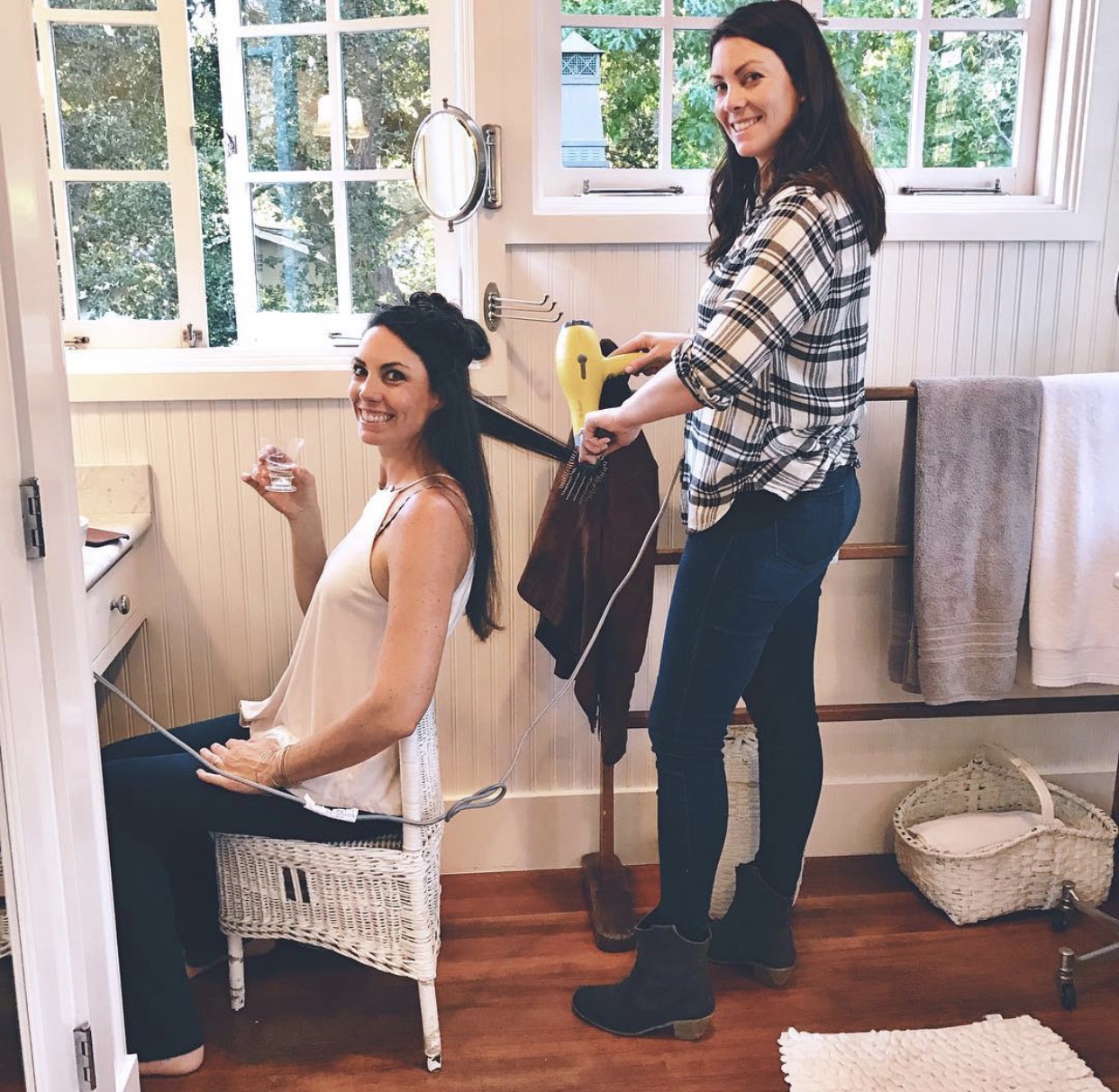
Ann: Yes, it’s never like formal or over the top. And you know, you never feel like you’re late, because everything happens kind of late. But I just try to model that with my kids and remind them like those little special moments. And you can do it in a range of lifestyles and a range of places. I mean, obviously, Mary and I carry these same thoughts with our own families in a very different lifestyle. I love that her kids are outside all the time, and muddy and dirty. And when my kids visit, they’re in heaven. In Nashville, it gets a little colder, a little hotter, a little buggier, and we just don’t have as much free range space, but my kids are hanging out in the driveway with the neighbors in the drainage ditch half the time we laugh that like we, you know, we don’t need to take them to playgrounds because they’re building a stick pile and climbing the fence into the neighbor’s yard and just give them that little bit of freedom.
Mary: And they’ll probably remember that drainage pit way better than if you bought them a fancy play house. They will. That’s what they remember. So we both – when Ann went to school in Nashville, I was still in the Bay Area. And Brian and I met in the Bay Area, he actually lived like six blocks from my parents in Menlo Park, which was shocking, because there weren’t a lot of single people living in that area anyway. But he had bought a little starter house, it was a disaster. It was a house he could afford and he knew he could fix it up. But it was like, there were raccoons living in it, the realtor wouldn’t even go inside for the open house. And luckily, I met him right after he’d done a lot of the heavy lifting. And we got to do the fun like bathrooms – or bathroom and kitchen together. And then we started our family there. And it was in 2013, that we were kind of itching for a getaway somewhere else to take the kids, we both our families both have agricultural roots. But Brian really grew up in agriculture, and wanted to have that tie to something with a little more land. So it’s a whole other story how I ended up on the ranch. But in 2013, we left the Bay Area and made a huge life change. And it was really amazing, because people, you know, a lot of people wanted to be in the Bay Area and thought like, wait, you’ve worked so hard for this. How are you just walking away?
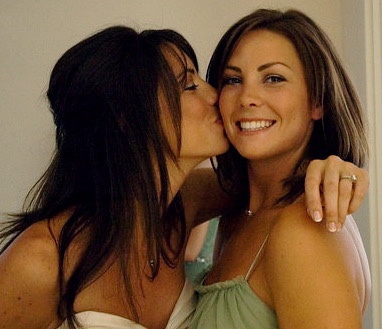
Ann: Or what went wrong? Like, how could you possibly be leaving?
Mary: Yeah, they were shocked, like, what happened? Why are you leaving, and it was really, you know, easy for me to leave this life that we created that was comfortable. And you know, I could go and get my hair done every week. And we had a nanny and housekeeper and things that we thought, Oh, we worked so hard for this. But I kind of had gotten burned out on it. And I’m like, you know, we’re not experiencing these nitty gritty family experiences. And as soon as we bought this ranch and went up on the weekends, to this tiny house that was nitty gritty, like and that that was what Brian and I were so drawn to like, this is how we want to spend our days with our kids. So it was easy for me to leave, because I was kind of burnt out, especially being in the service industry. You know, we were, it’s a land of opportunity. And we were making good money off of all of these families in tech, that wanted to pay anything for great experiences for their kids. And that’s kind of what we’ve always based businesses on like seeing a niche and selling it. And that was easy to do in the Bay Area, you know, there’s a lot of niches to fill people that will pay for whatever great service you provide. It has to be awesome.
Ann: Yeah.
Mary: It doesn’t have to be cheap. So we left that opportunity, which was scary, but providing service based businesses with Yelp reviews and demanding customers and demanding children. It was like, I can leave this like I’m comfortable leaving.
Ann: And I think that innovation in the Bay Area is something that we are so grateful for. Because we saw I mean, tech is fast, like things rise and fall and are exciting. And you know, people are constantly talking about these unicorns in these companies. And can you believe, you know, what has happened overnight. And you know, there’s a lot of years between behind those stories, but our we didn’t grow up necessarily with parents as entrepreneurs, but we grew up in a in an area where things changed quickly and we saw people make things happen. And it just felt like there was so much opportunity so much access to information and I watched Mary create these businesses one after another and act like it was easy, which it’s – not act like it was easy, make it look easy. And and it gave me that like, okay, I can do that. And I think another part of I don’t know, our I think it was our household, but maybe even the area as well. I never felt like because I was a girl. There was any limitation. I mean, I know that sounds kind of naive because a lot of people face a lot of challenges being a female in the workforce, but in our household. There was never a “oh even though you’re a girl, you can do this,” or – I never even got that. I never got it in school or anywhere. It was just like, yeah, go do whatever you want to do. There’s no commentary about gender is just like, our dad, especially I think is, you know, he, he truly is like your mom is kind of in charge of our household. I mean, she works so hard. He’s always given her so much credit for raising kids and being home and doing all the hard work. And it just gave us this like, sense that, yeah, you can have a job, you can go do whatever you want. You can make money. You don’t have to wait around for someone to give you permission. And that is a really cool feeling. And I think it’s something that has never held us back in the things we’ve received.
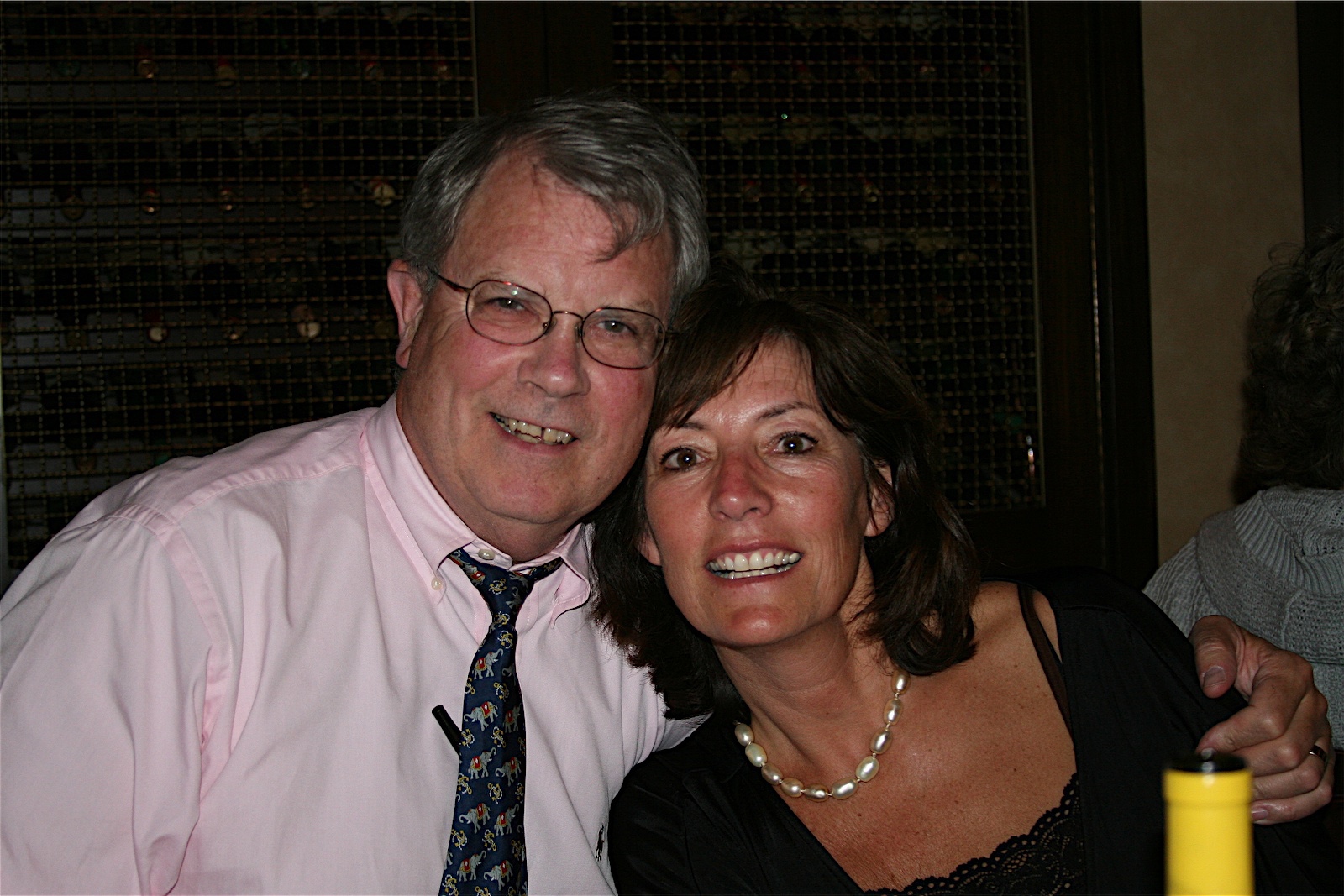
Mary: Yeah, I think mom and dad were really great at that. And he wanted something they were like, go for it. But you know, they didn’t give it to us.
Ann: No.
Mary: They made us work for it. But they supported us along the way.
Ann: Yeah.
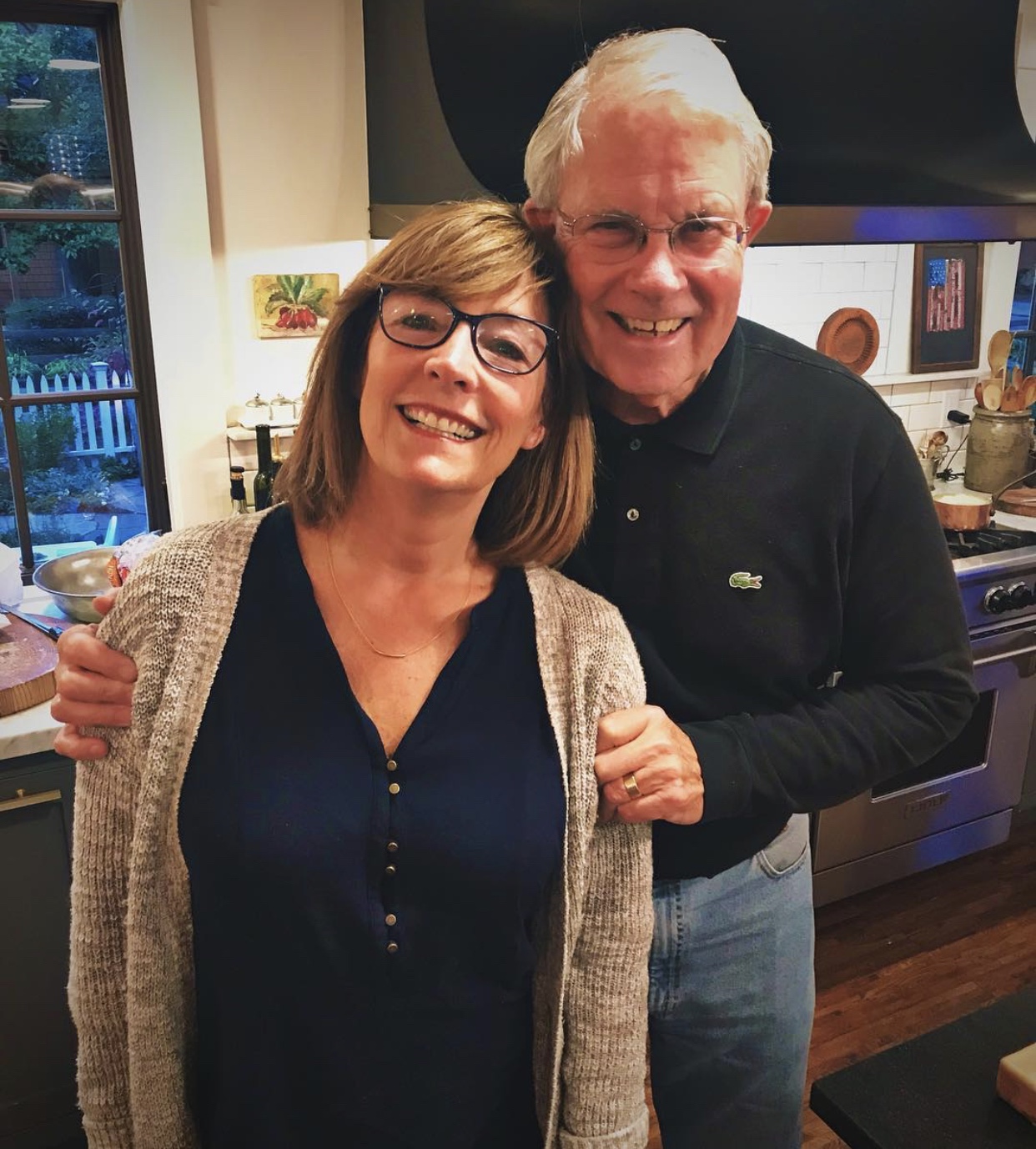
Mary: All right. Well, thanks for joining us on this first inaugural episode of Boots and Bangles, the Small Business Sisters.
Ann: Yeah, that gives you a little bit of background just in the way we grew up. I know I’ve had people say like, how are you guys from the same family? Mary’s like pulling animals out of other animals. And I am living more of a suburban life in Nashville. But we had some amazing memories and love where we came from and always, you know, want to be able to talk about what a great job we think our parents did and what a cool place it was to grow up. But it’s definitely taught us some lessons that we’ve taken with us into our lives now.
Mary: It has. So the city sister and the country sister will be back for Episode Two. Thanks for joining us.
Ann: Thanks.
Sounds like a wonderful childhood growing up.in your neighborhood!